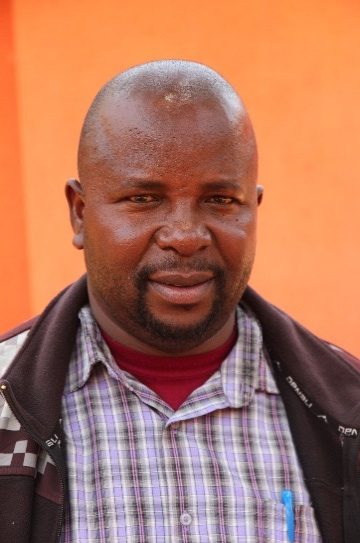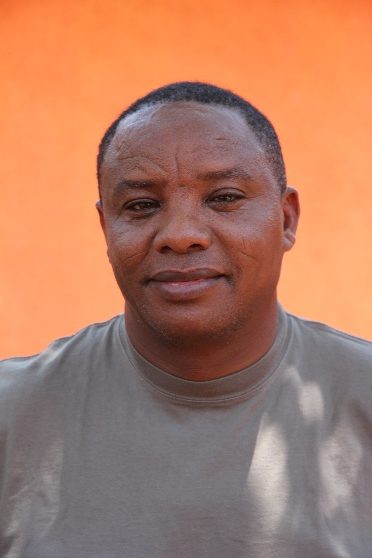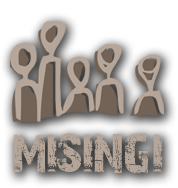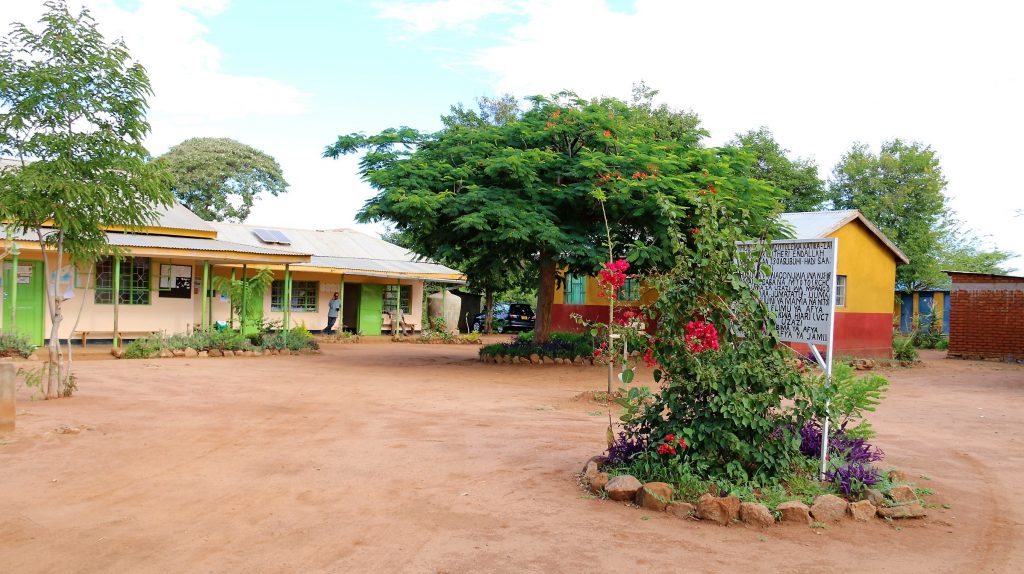
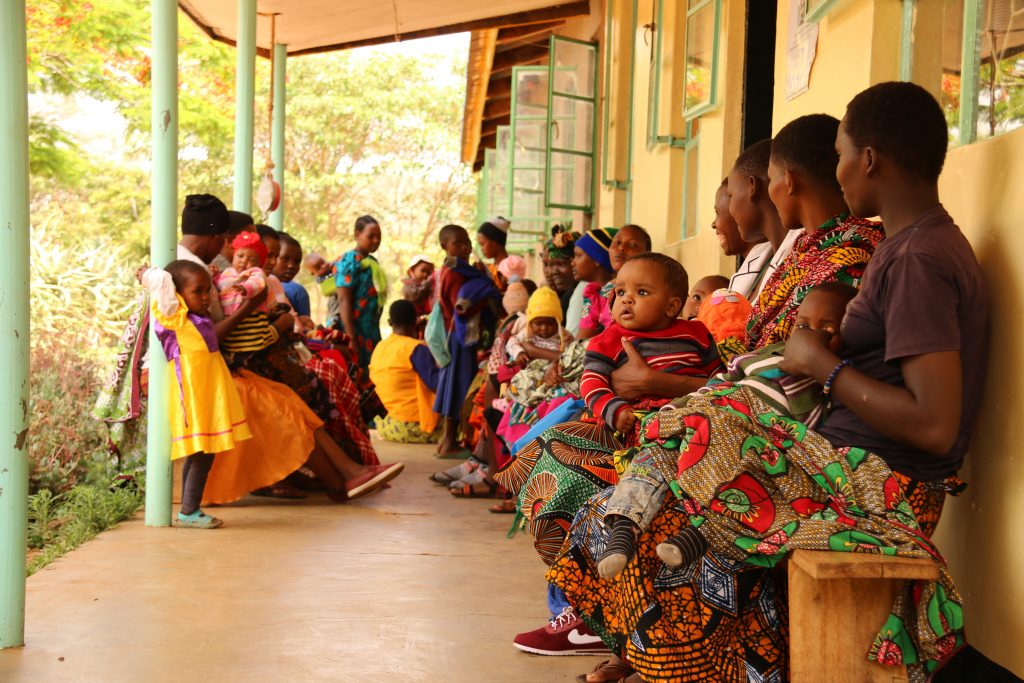
After the successfully completed maji-project, Misingi starts with ‘Afya’ (Kiswahili for health). By March 2023, Misingi wants to renovate the current dispensary in Endallah and build a new maternity unit there, with BEmONC-facilities. The project is in according with the values and vision in public health, primary health care and community participation, as described and taught at the Institute of Tropical Medicine Antwerp. For the construction plans, we could rely on the expertise of Medecins sans frontieres. Before Afya, Misingi already supported the dispensary with smaller activities. Finally, Misingi facilitates the foreign internships for students nursing and midwifery of the university college Thomas More. The dispensary is one of the permanent internships.
Project period: July 2019 – April 2023
Total cost: 81.179,05 EUR
Beneficiaries: the 29.342 inhabitants of Endamarariek ward
To realize:
Coordination Tanzania: Elibariki A. Dimme & staff of Endallah Dispensary
Coordination Belgium: Vincent Van Baelen
For medical and nursing care, the 6.500 inhabitants of rural Endallah have just one small health post: Endallah Dispensary. Endamarariek health center, if motor or jeep available, is one hour away (12 km). This health center is better equipped (eg possibility of sections), but due to foreign privatization too expensive for the most villagers. The only hospital in the area, Karatu Lutheran hospital, is one hour and a half driving (35 km). With a quick screening and diagnosis there is a timely referral. But unfortunately, with more acute situations such as motorcycle or work related accidents among farmers or workmen, it is often too late.
The Endallah Dispensary team consists of 1 doctor (Dr. Bacillus Komba), 1 nurse (Eliaichi Temba), 1 lab technician (Martha Fisoo), 1 night watchman (Yotham Baynit), 1 cleaning lady (Marietta) and 1 handyman (Zachayo). Due to Martha’s prolonged illness, Dr. Erick currently runs the lab. dr. Komba and Dr. Erick live near the dispensary and are available 24/7. Vaccinating the babies is on the agenda every Tuesday. Every Thursday is the ‘pregnant mothers clinic’: pregnant women are examined and followed up. Of course, this does not mean that they are not welcome on other days. Twice a month outreaching to Manusay and Masabeda is on the daily schedule. Babies and pregnant women will then receive the necessary vaccinations on site.
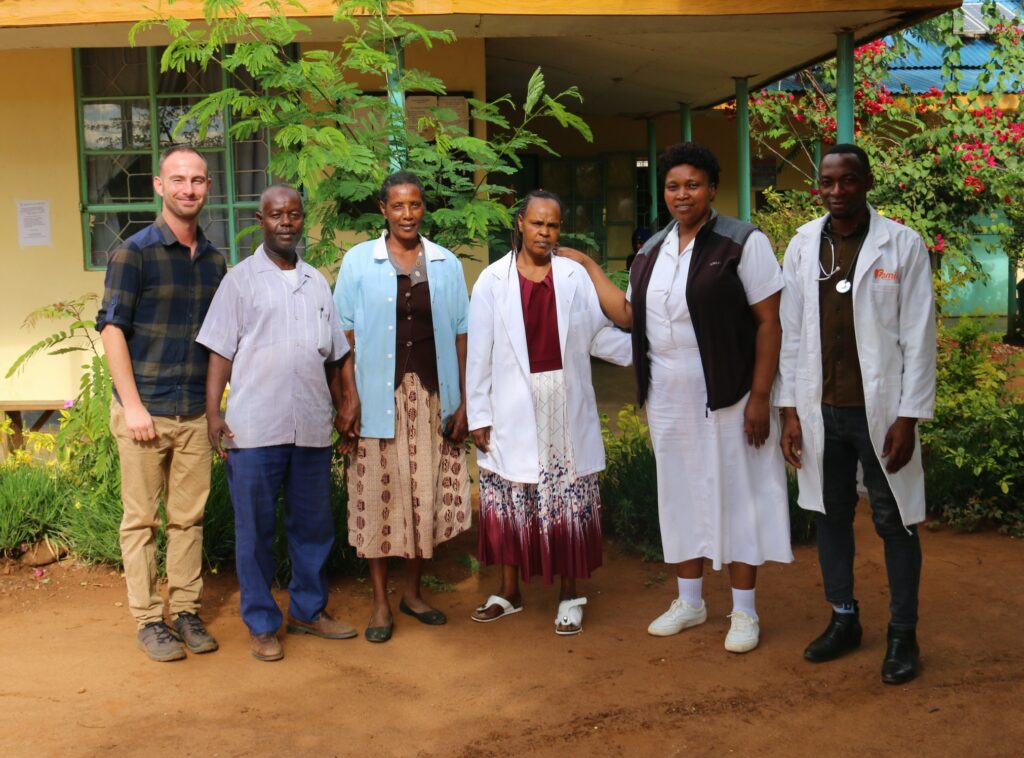
The dispensary has a reception, several toilets, two patient wards and several rooms for consultations, lab examinations, wound care and childbirth. Thanks to the Maji project, there has been a water connection for several months now. Since 2017 there are also solar panels. Before that it was for the nightly deliveries, you make do with a headlamp. All medical waste is incinerated in a pit. For this, the project includes the construction of an incinerator, which is mandatory by the government. In some rooms the roof and windows are broken. There is a lack of basic material; no curtains, no IV stands, no pillows, insufficient (washed) sheets, insufficient mattresses, broken beds and toilets…
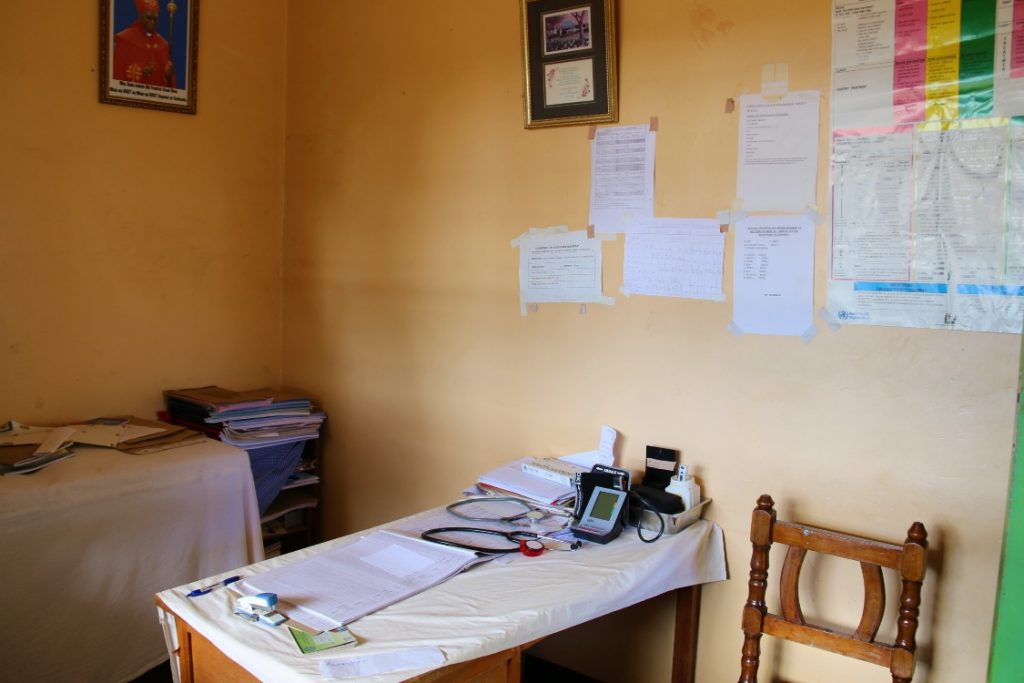


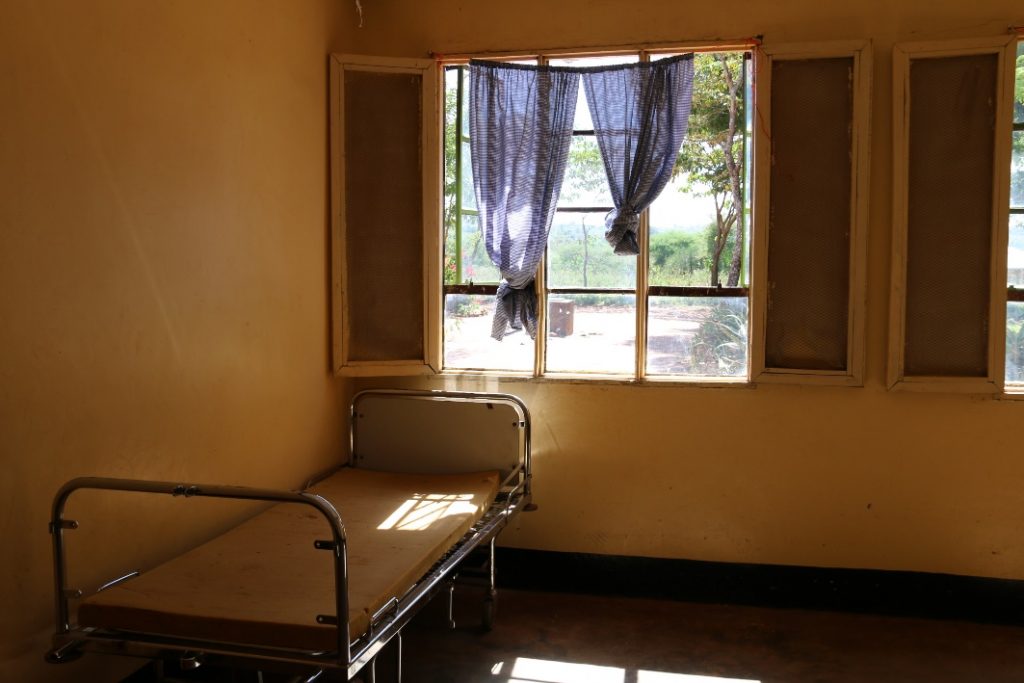


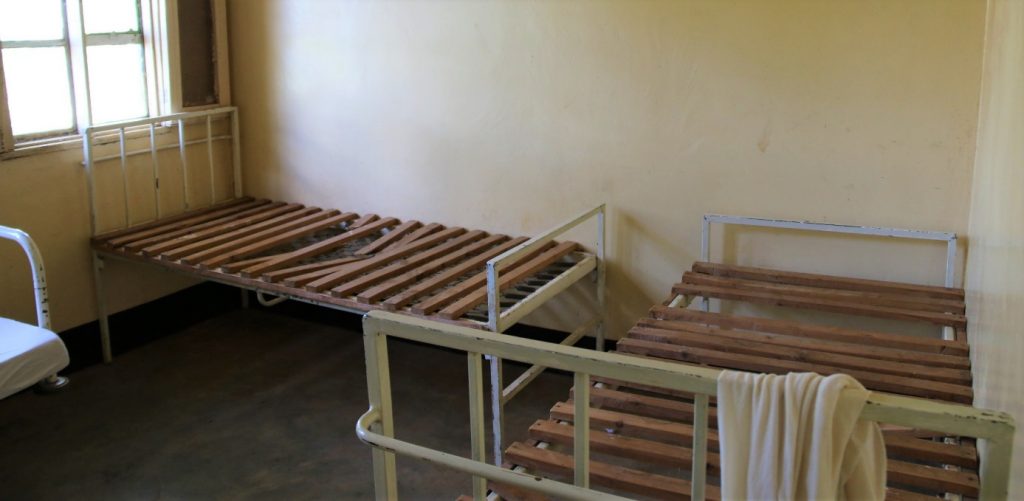
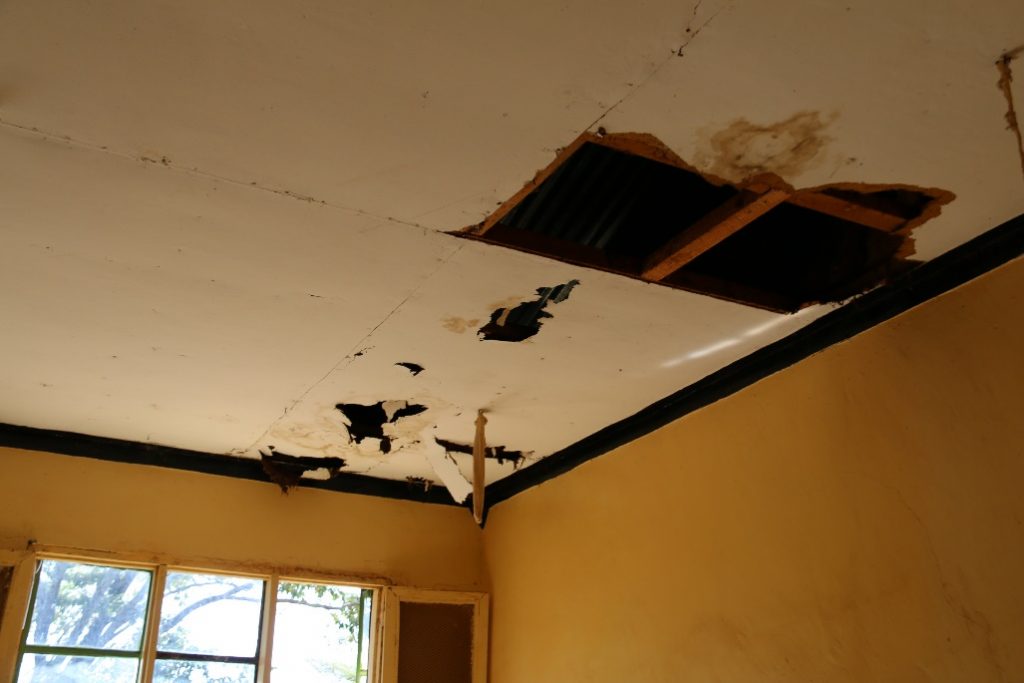
Endallah Dispensary has a large shortage of wound care equipment. The entire stock consists of a few bandages, some plasters, a few bottles of isobetadine and physiological water. There are no sterile compresses. The last years, our sponsors donated the majority of the medical equipment: tweezers, scissors, monitors for blood pressure, glycemia and saturation… The equipment is ‘sterilized’ by boiling water on a gas fire.



Endallah healthpost has an extensive lab. It is partly for this reason that not only residents of Endallah, but also far beyond, come here. Possible tests are: HIV, syphilis, malaria, Brucella, typhoid fever, heliobacter pylori, hepatitis C, erythrocyte sedimentation rate, glycemia, blood group determination and microscopic examination of urine and stool. However, the lab boat does not yet have the necessary equipment such as a centrifuge and a hemoglobin machine. The microscope is also broken. With this project we can also provide these.
Daily, there is an average of 10 to 20 patients. The team can perform smaller medical interventions such as wound sutures and natural births. The most common diseases are respiratory, gastrointestinal and urinary tract infections, pelvic inflammatory diseases, intestinal worms, wound infections, diarrhea, skin diseases and asthma. According to Dr. Komba, due to more and clean water because of the Maji-project, the gastrointestinal infections decreased.


The local government provides contraception, mosquito nets, medication against malaria & TB, vaccines and rapid tests for the lab. It is (financially) dependent on itself for all other materials: administration, wound care, lab & cleaning materials and all other medication. With the exception of paying the water bill and some wages, there is no financial support from either the government or the church. We do not want to and cannot ask patients for a higher price. They are very poor and our aim is not to exclude anyone, especially the most vulnerable. A difficult financial puzzle.
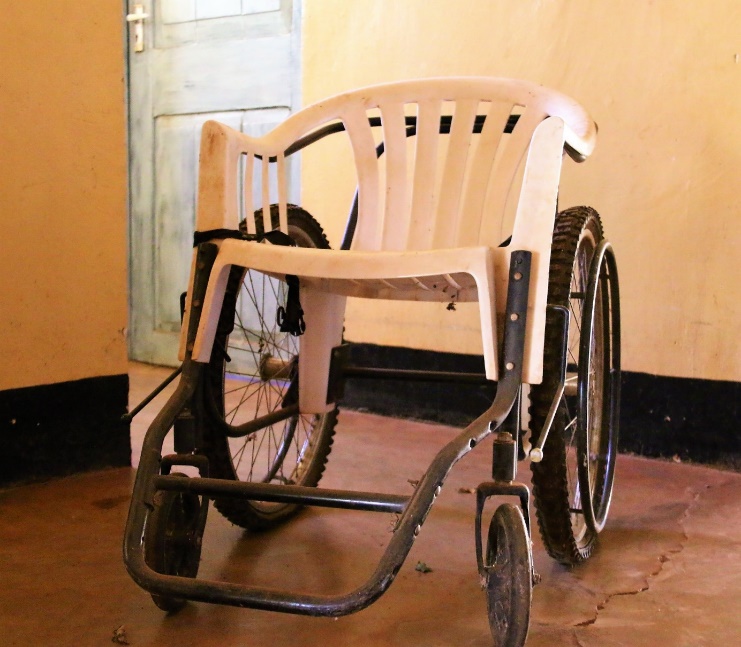

In addition to curative care, Endallah Dispensary also provides follow-up for babies and children (picture), family planning and vaccinations. It features vaccinations against diphtheria, tetanus, pertussis, hepatitis B, influenza, rotavirus & pneumoccocus. These vaccines are kept cool with gas (picture). The government has decided that a consultation is free for patients younger than 5 and older than 60 years. Vaccines and tests for malaria and HIV are free for everyone.
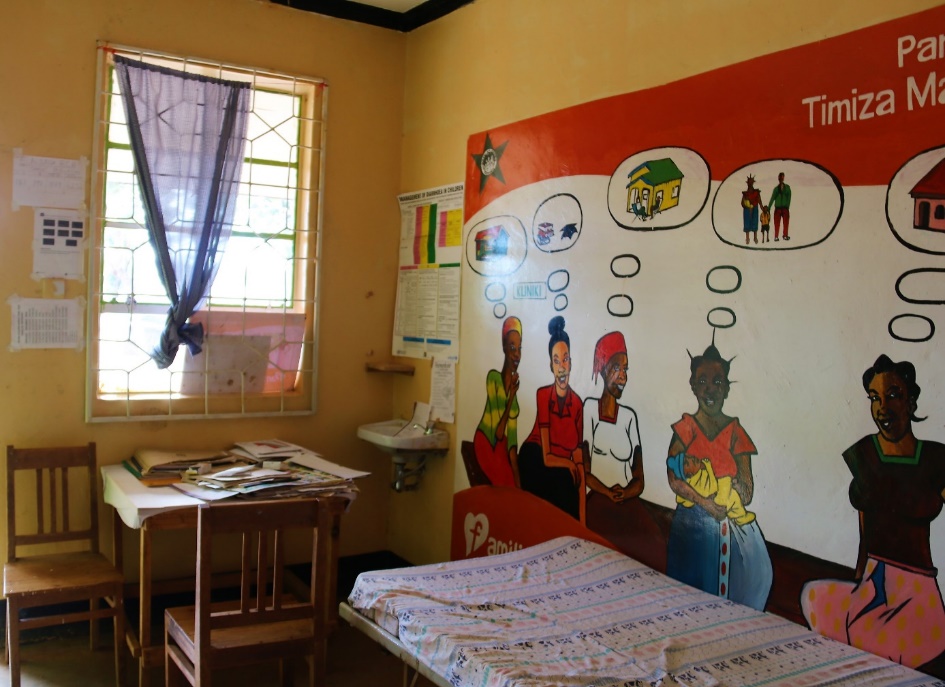
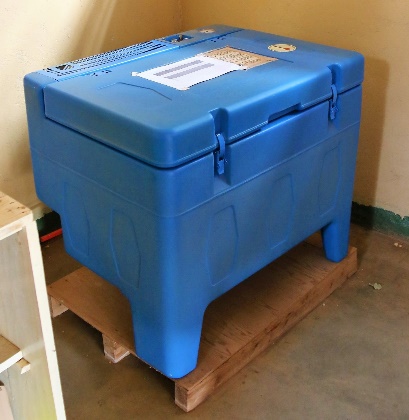

Total cost: 2.000 EUR
Schedule: Completed (July 2019 – August 2019)
Dr. Simpa, the doctor who worked in Endallah Dispensary for ten years, and Dr. Solomon, the doctor who is currently working, made a medication list and bought it in Arusha. A room was made empty and racks were purchased. Inhabitants can now buy the medication at an affordable price and after medical advice. This integration of the pharmacy in the dispensary is a healthy and affordable alternative for the shops that sell uncontrolled medicines without prior medical consultation. Moreover, the pharmacy is no longer dependent on the lack of medication by the government. With the sale of the medicines, the team can constantly replenish the stock, but also pay other costs such as the water bill and lab material.
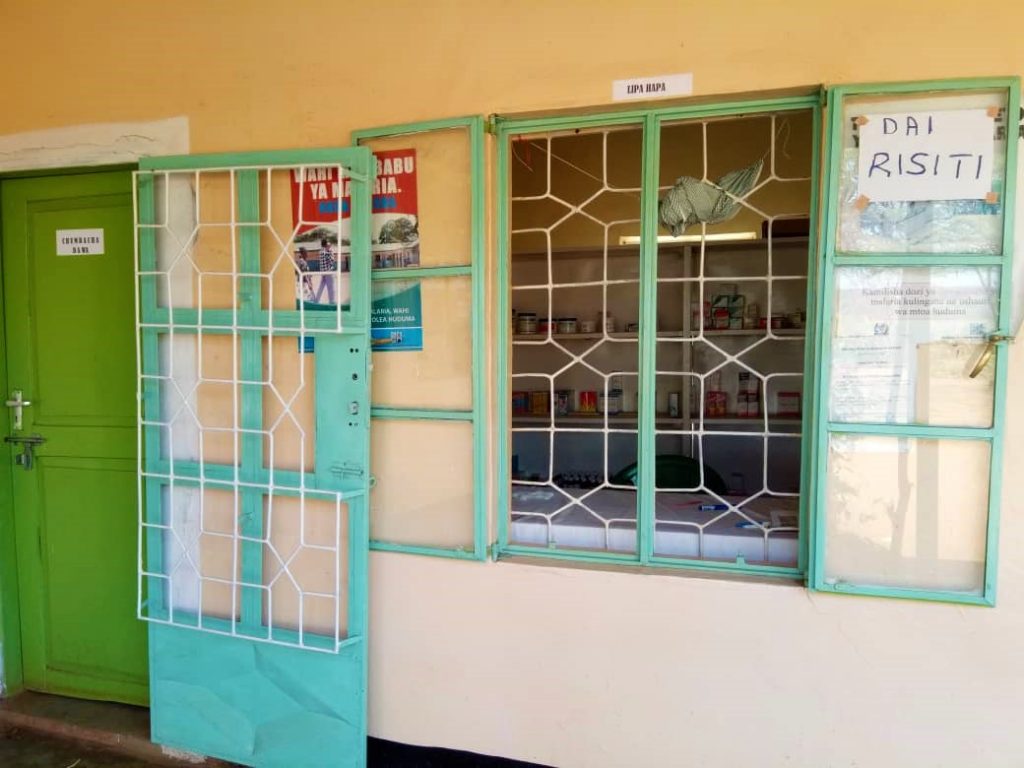
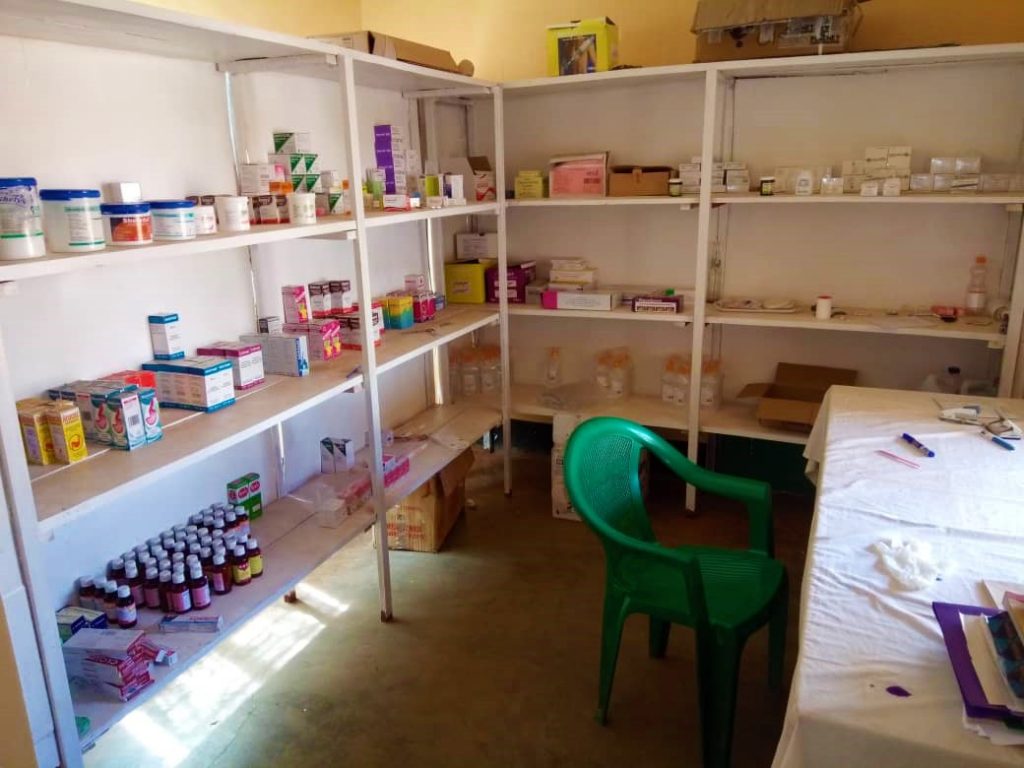
Total cost: 1.733,49 EUR
Scheduled: Completed (September 2019 – October 2019)
Before starting the construction of the new maternity, we will renovate the current dispensary. The roof and some doors, windows and toilets are repaired.
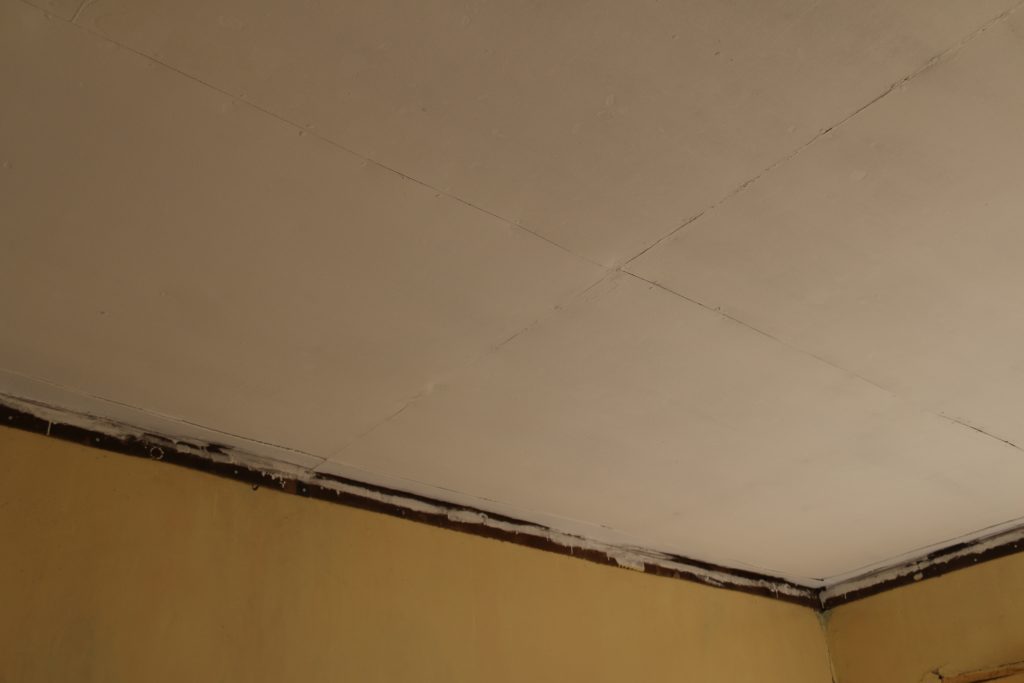
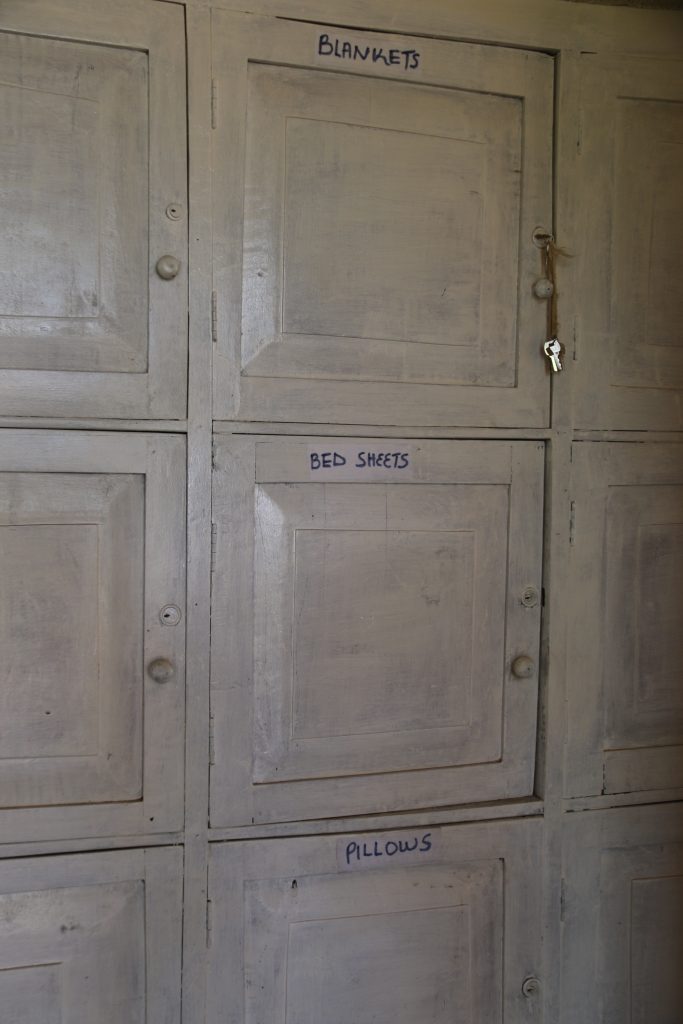
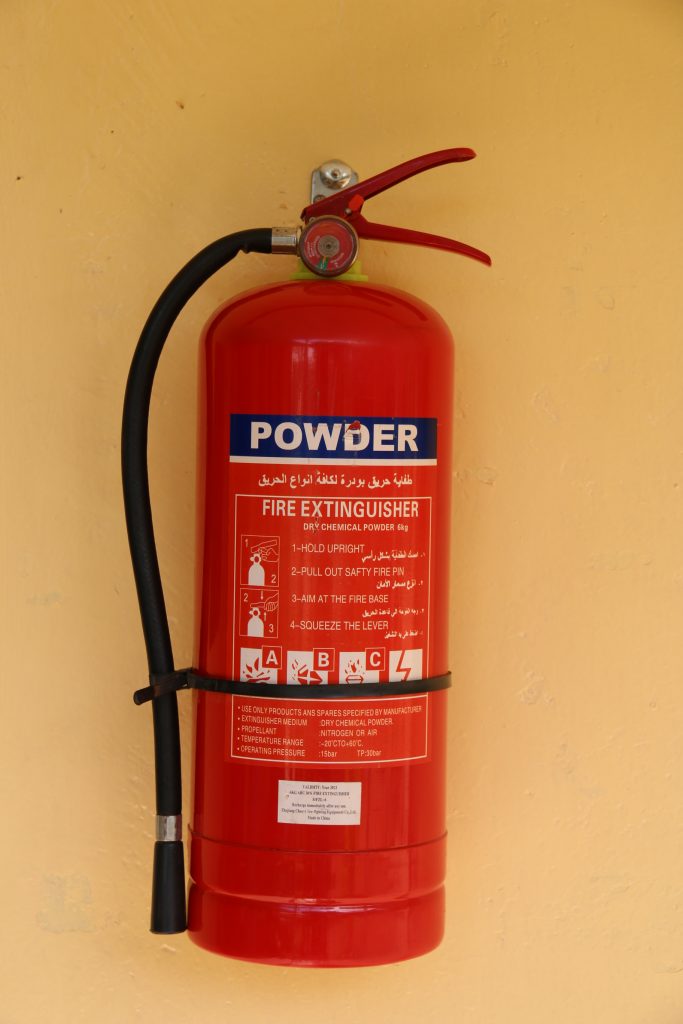
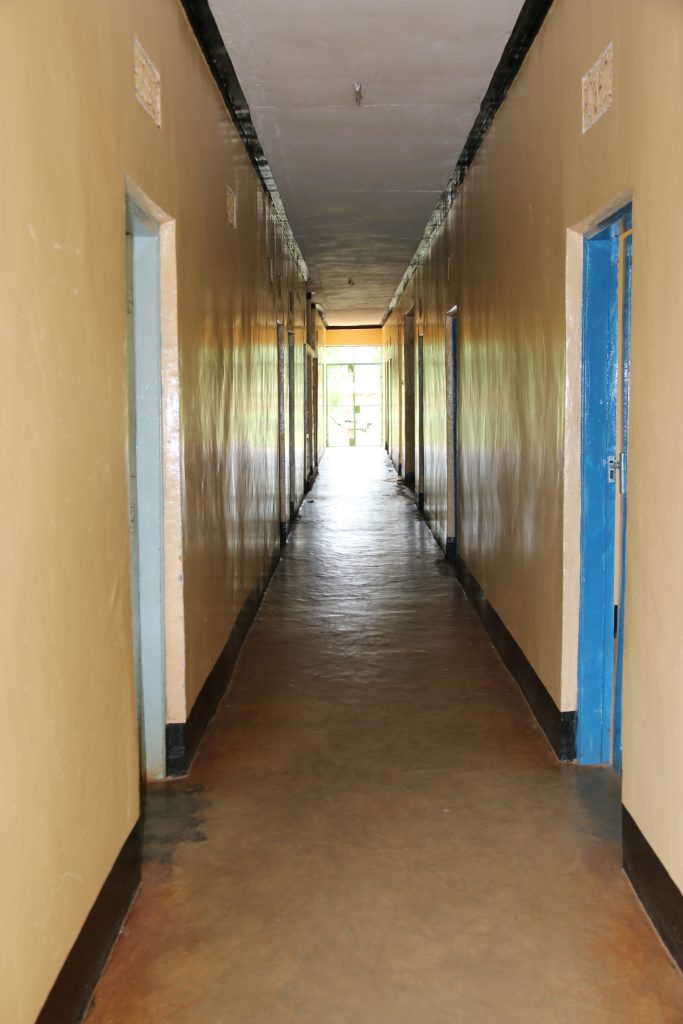
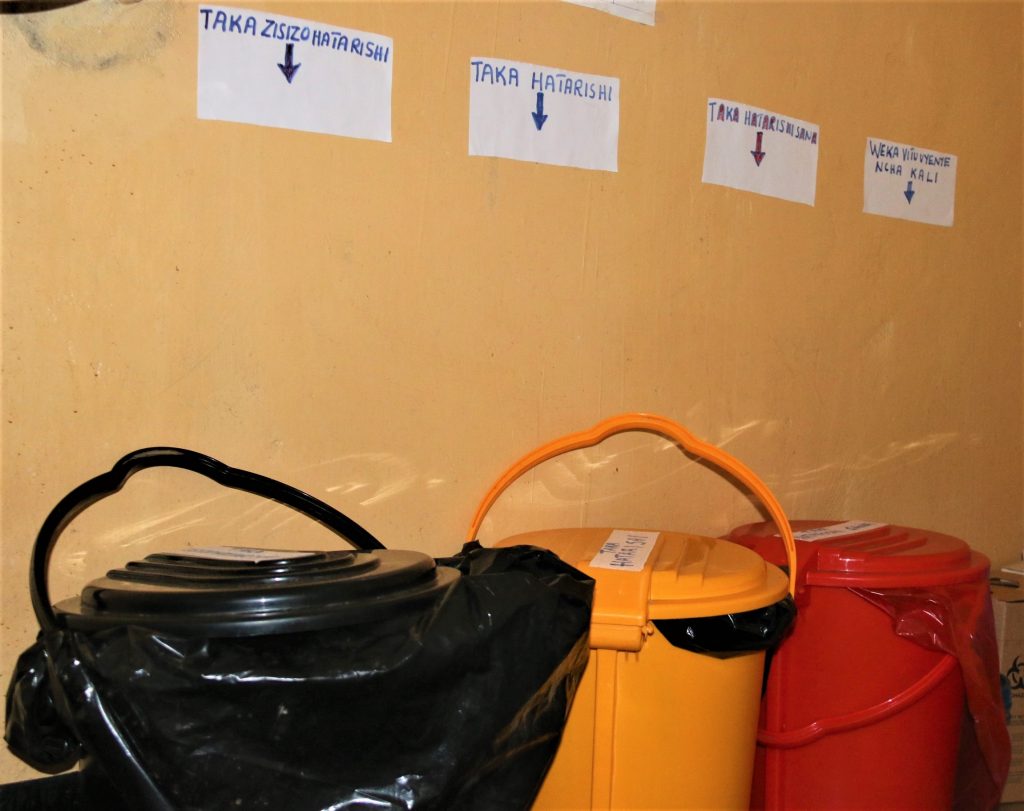
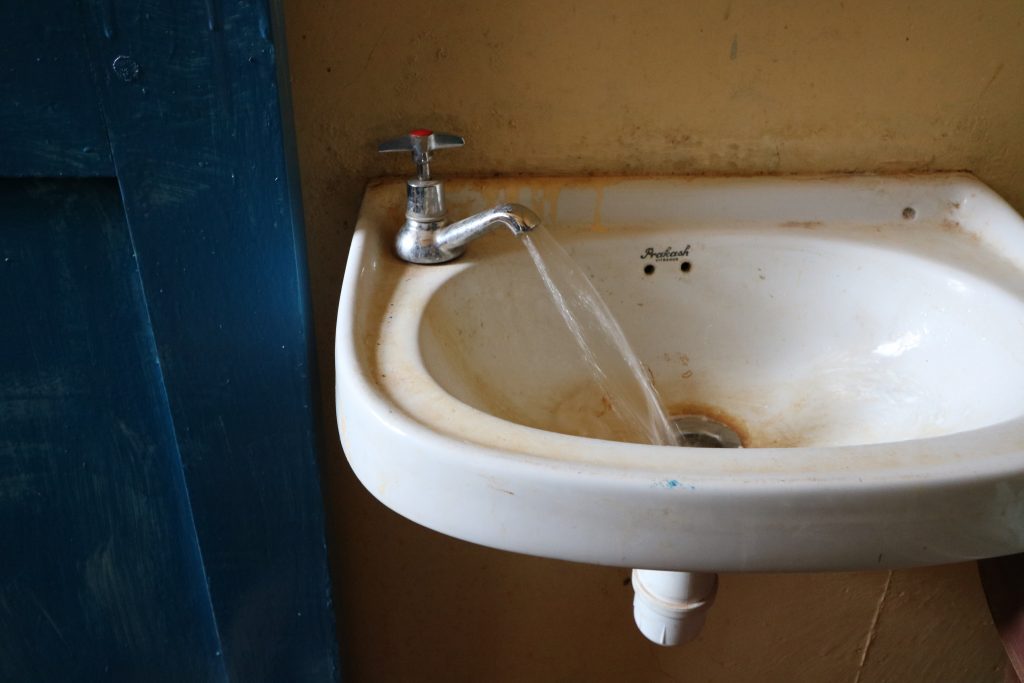
Total cost: 5.682,40 EUR
Scheduled: Completed (November 2019 – December 2019)
The purchase of 4 beds with pillows, sheets and blankets, 2 examination tables, 1 scale for adults, 1 scale for babies, 10 trash cans, 1 wheelchair, 4 drip stands, 2 examination lamp, 4 lockers, 1 autoclave, 1 centrifuge, 1 microscope and 1 hemoglobinemeter.
Of al these innovations, the team experiences positive outcomes. It can provide better totalcare with more extensive lab tests and a larger medication range. Therefore, more and more patients, also from neighboring villages, are coming to the dispensary. The team drew up a financial plan and tries to remain financially independent. Unfortunately, it cannot count on much support from the (local) government. Sponsorship (J-Tec Material Handling, Luc Boey & Chantal Putteman) provides a laptop in January to handle the increasing administration efficiently.
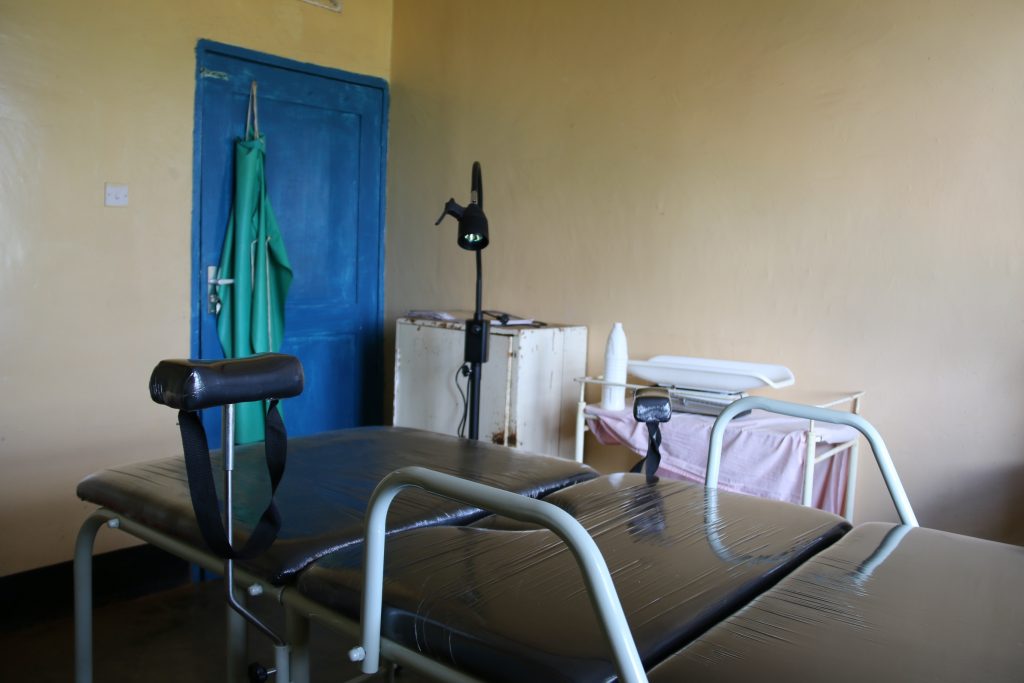
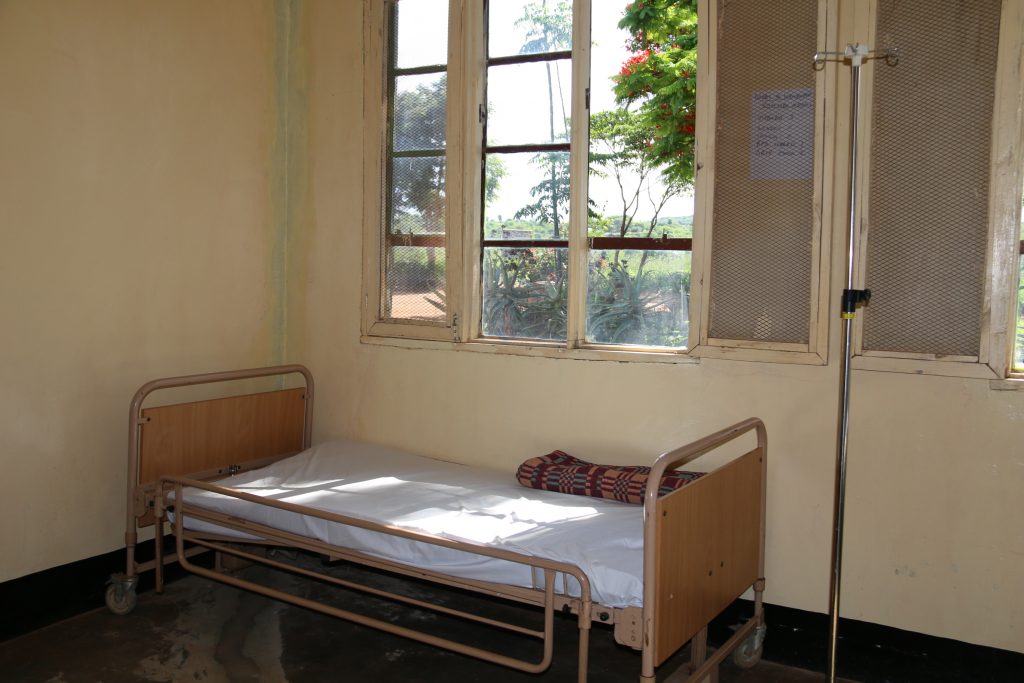
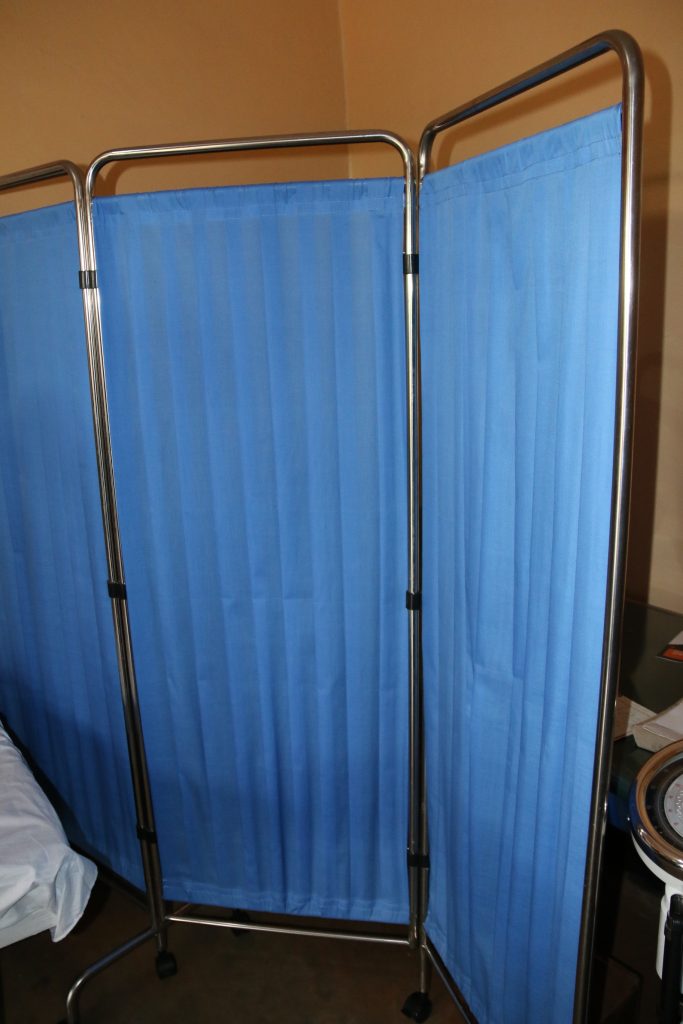
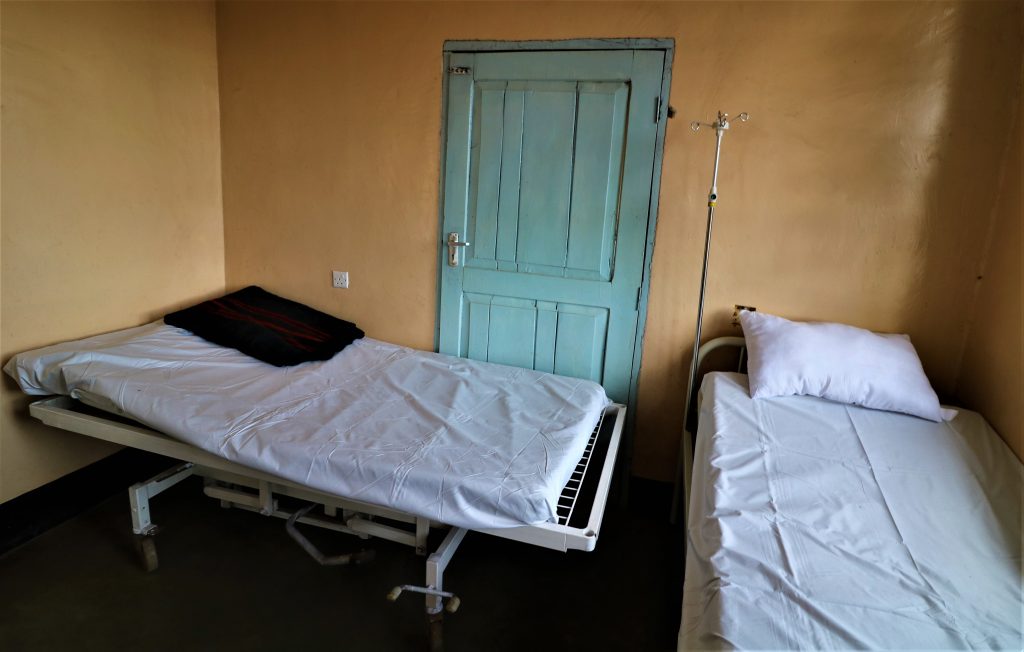
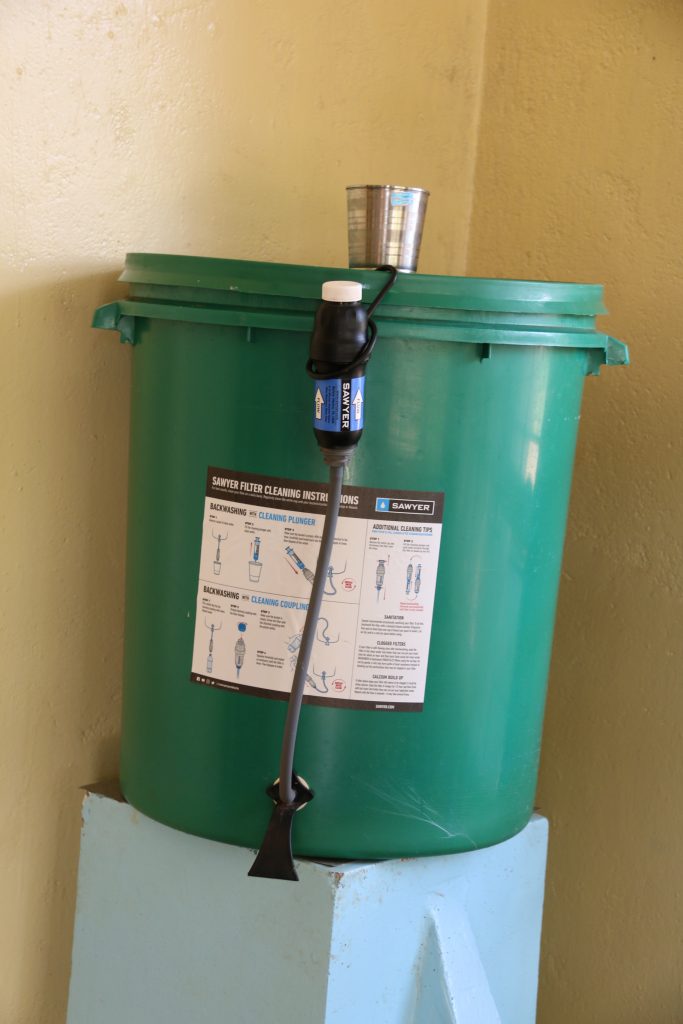
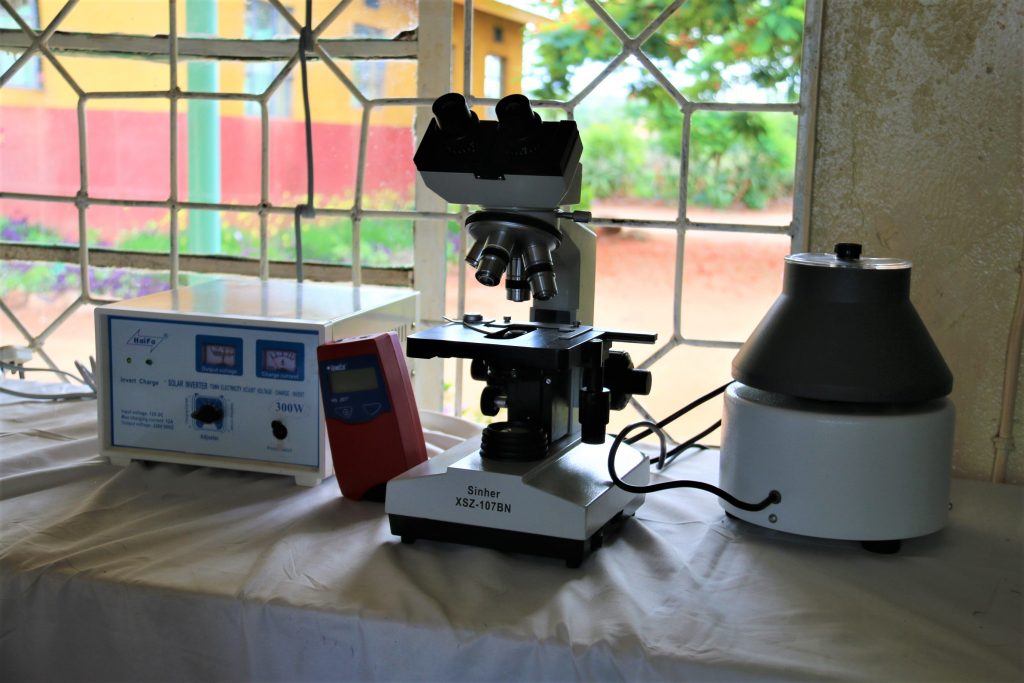
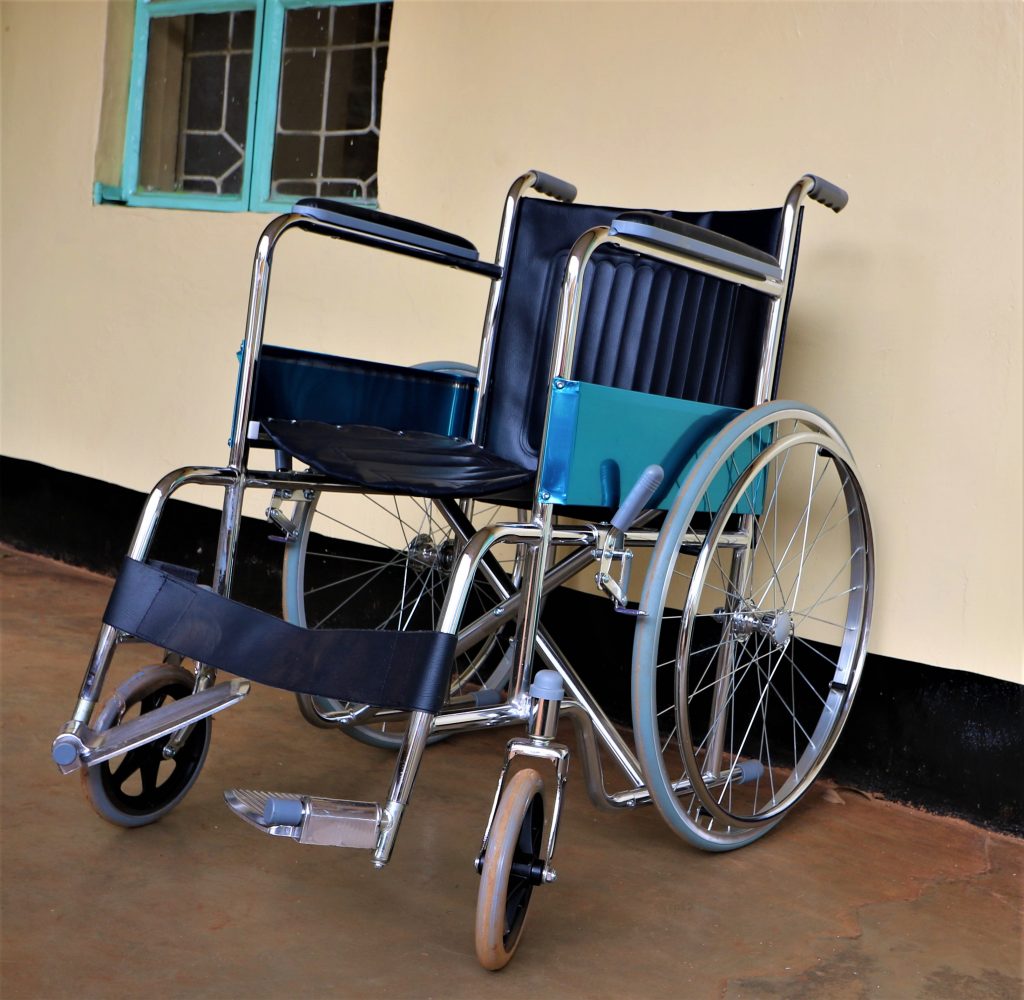
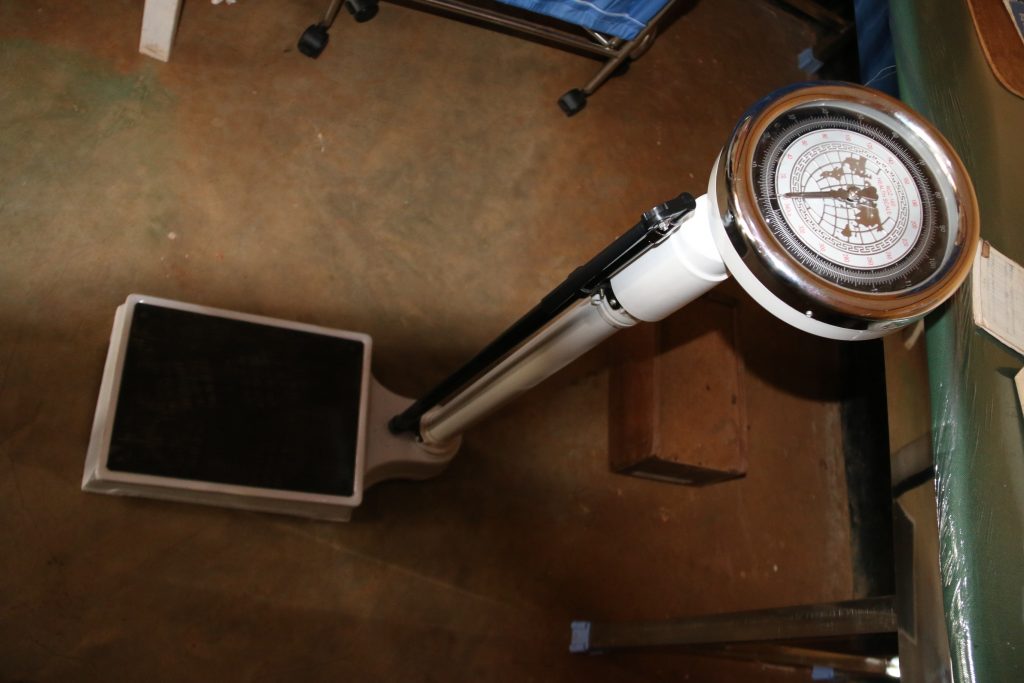
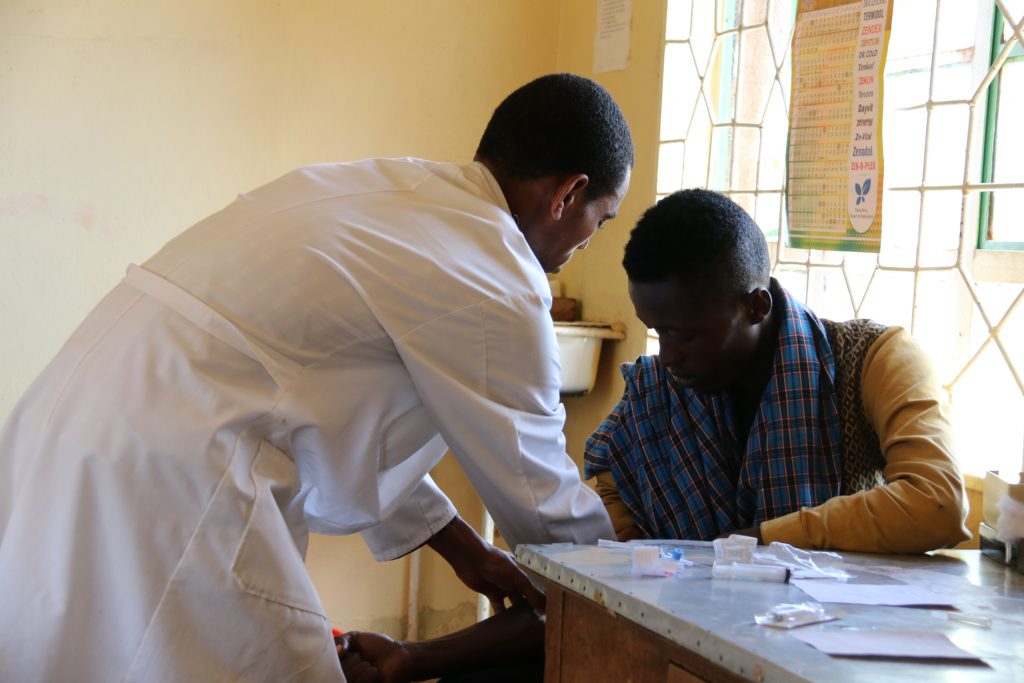
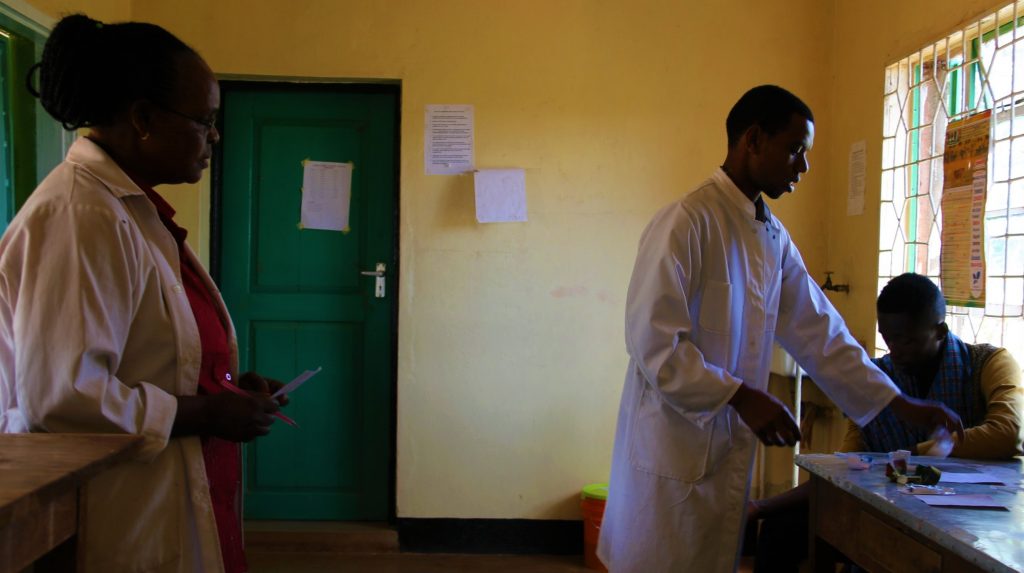
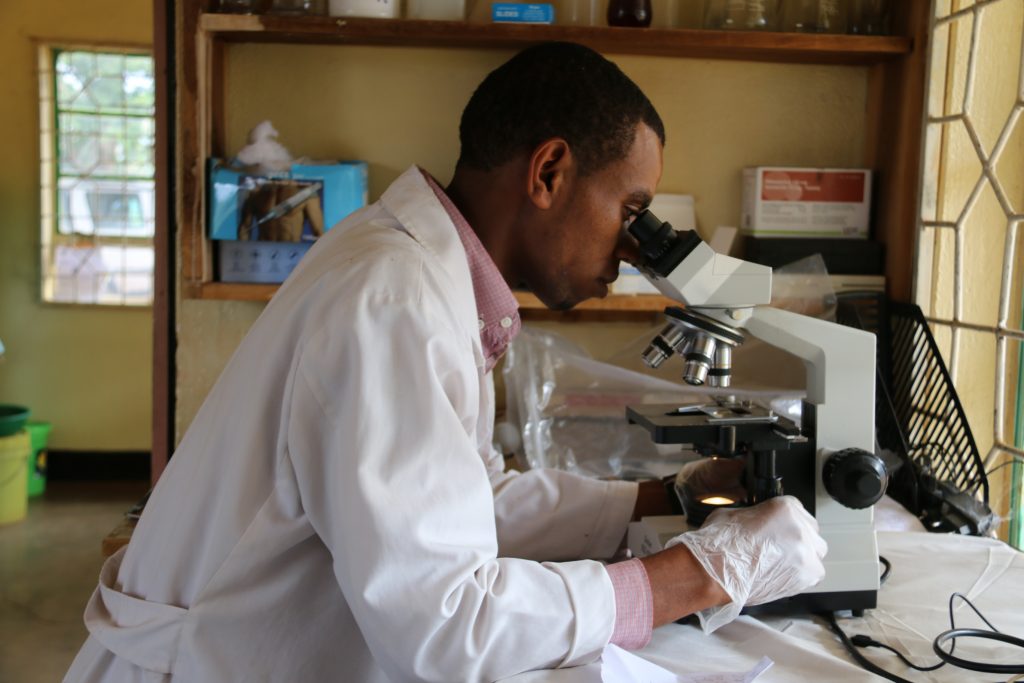
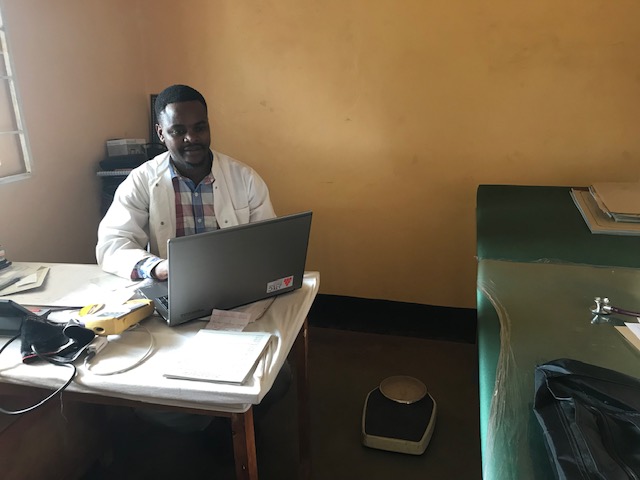
Total cost: 61.814,46 EUR
Schedule: Completed (January 2020 – May 2022)
In January, Misingi starts with the biggest phase of this project: the construction and layout of a maternity unit. Plans of ‘Doctors Without Borders’ and the (local) Tanzanian government were compared and discussed. This phase starts with the construction of an incinerator. The current “waste-pit” near the primary school, a wood-enclosed hole in the ground where all medical waste is incinerated, is too dangerous.
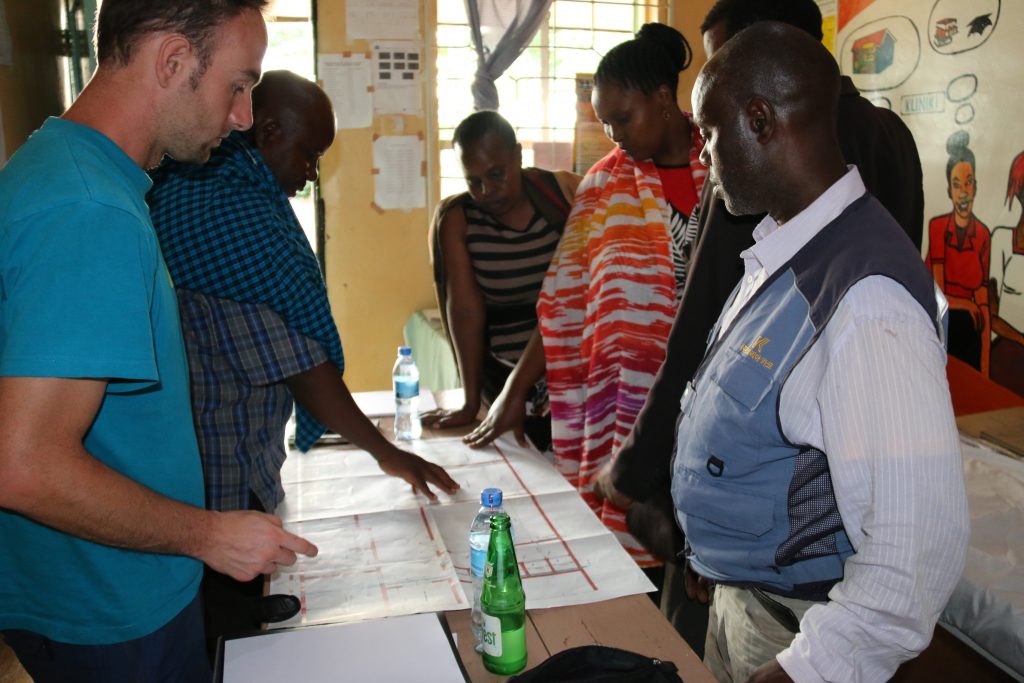
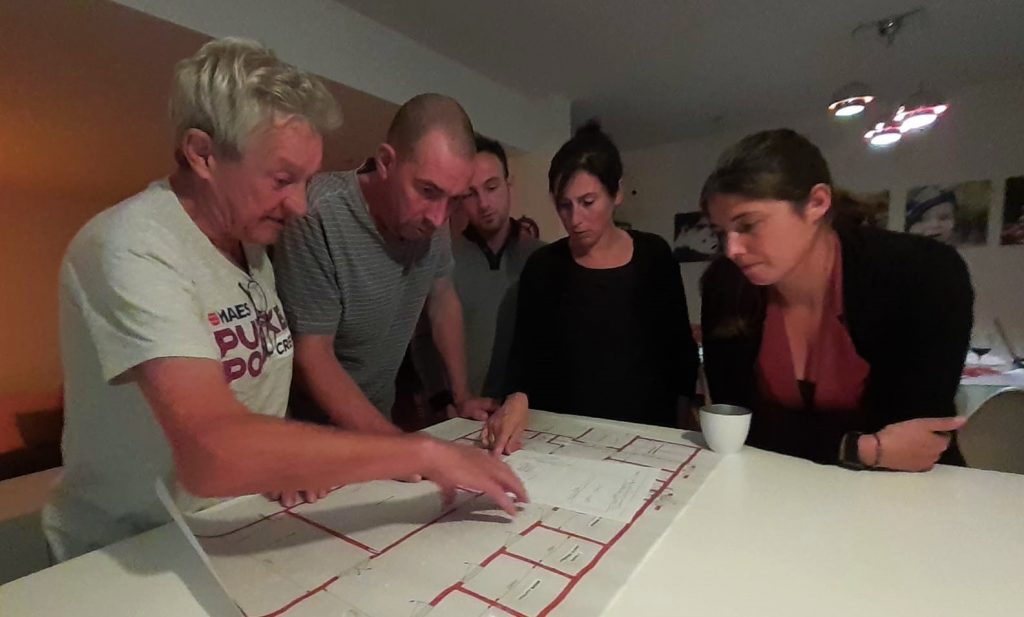
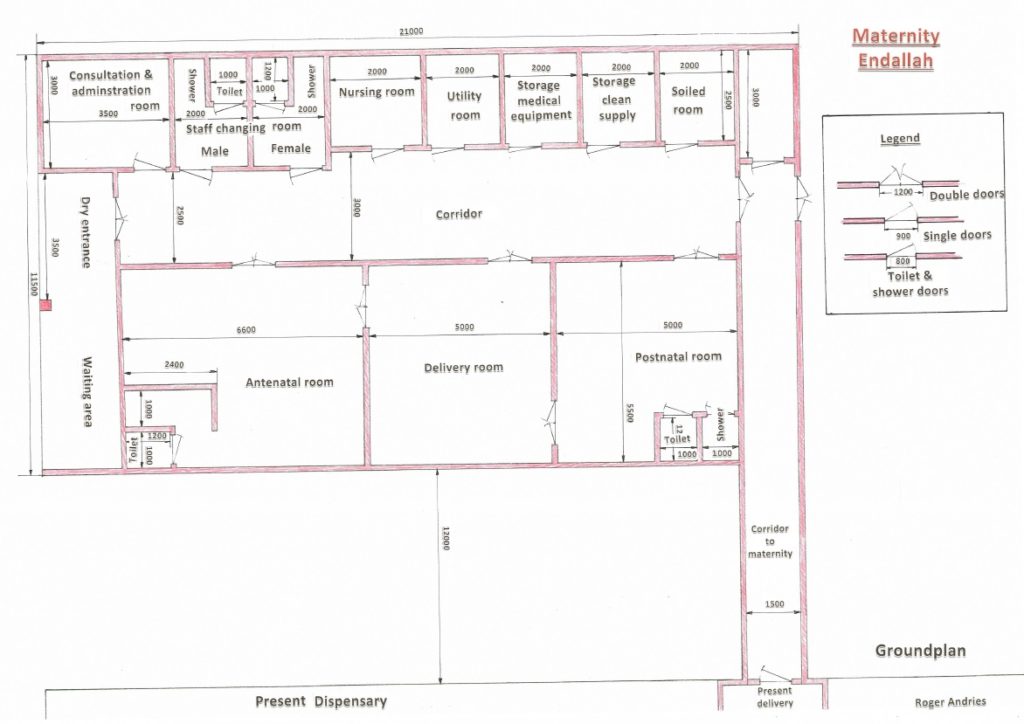
Due to long-term rainfall, this phase has been delayed for several months.
For many years it hasn’t raid that much. The bridge, the entrance to the dispensary, and pipelines are broken and roads have become inaccessible. The repairs have begun. With a smaller tractor, fundi (construction workers) brought the first stones for building the incinerator.
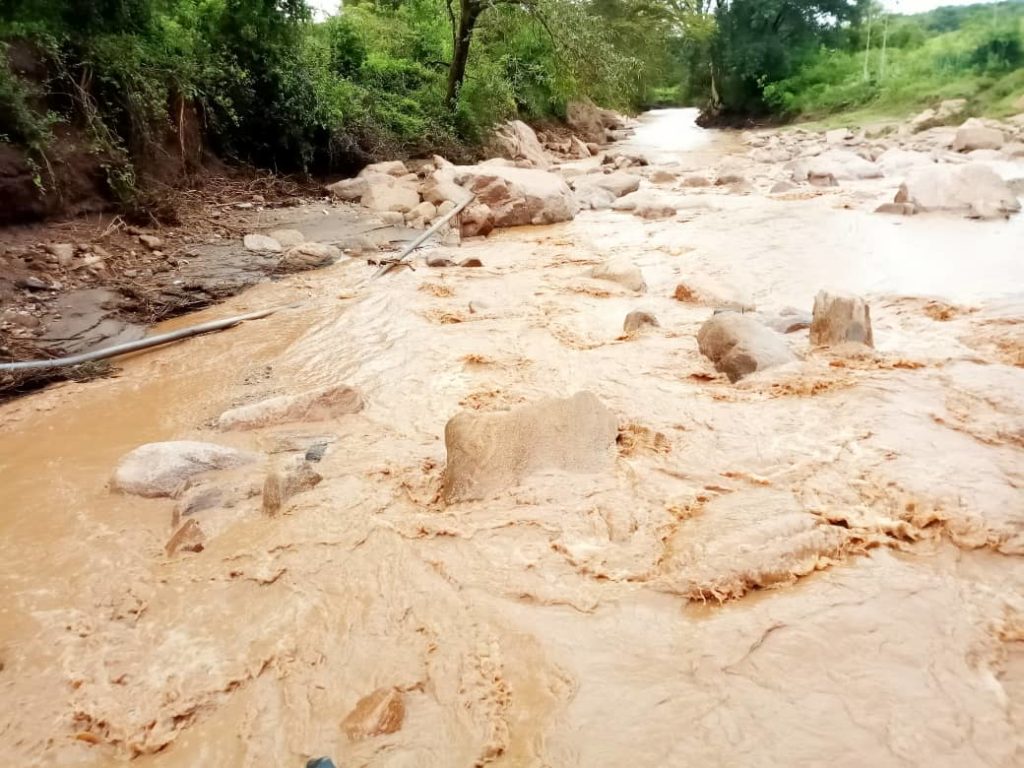
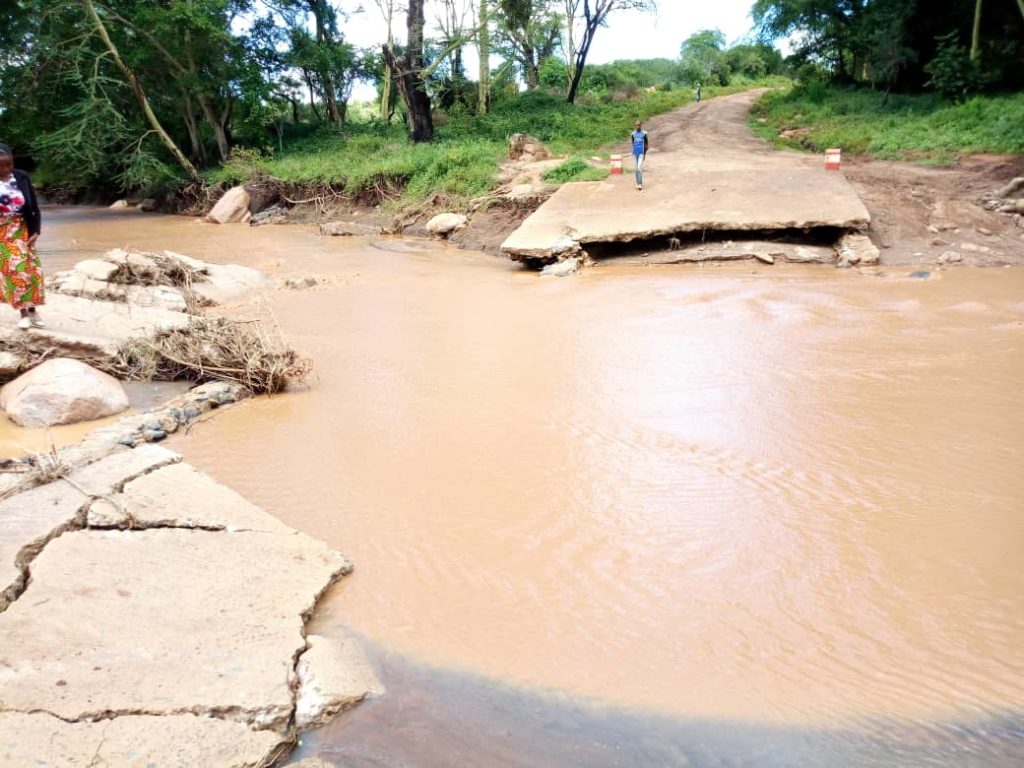
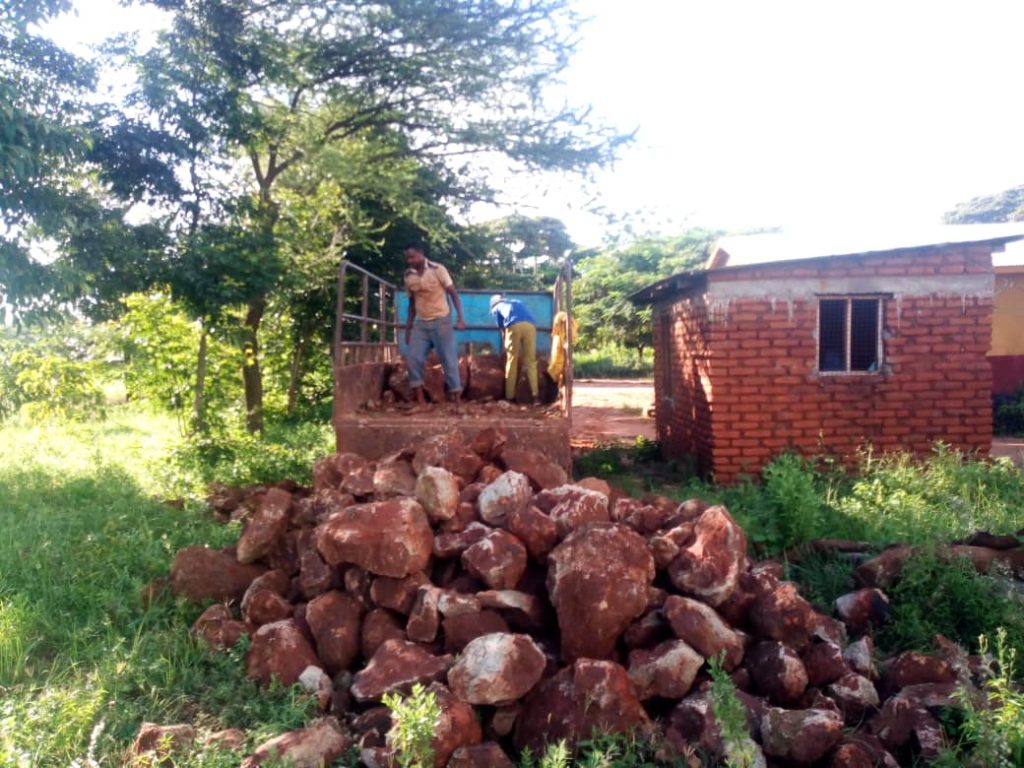
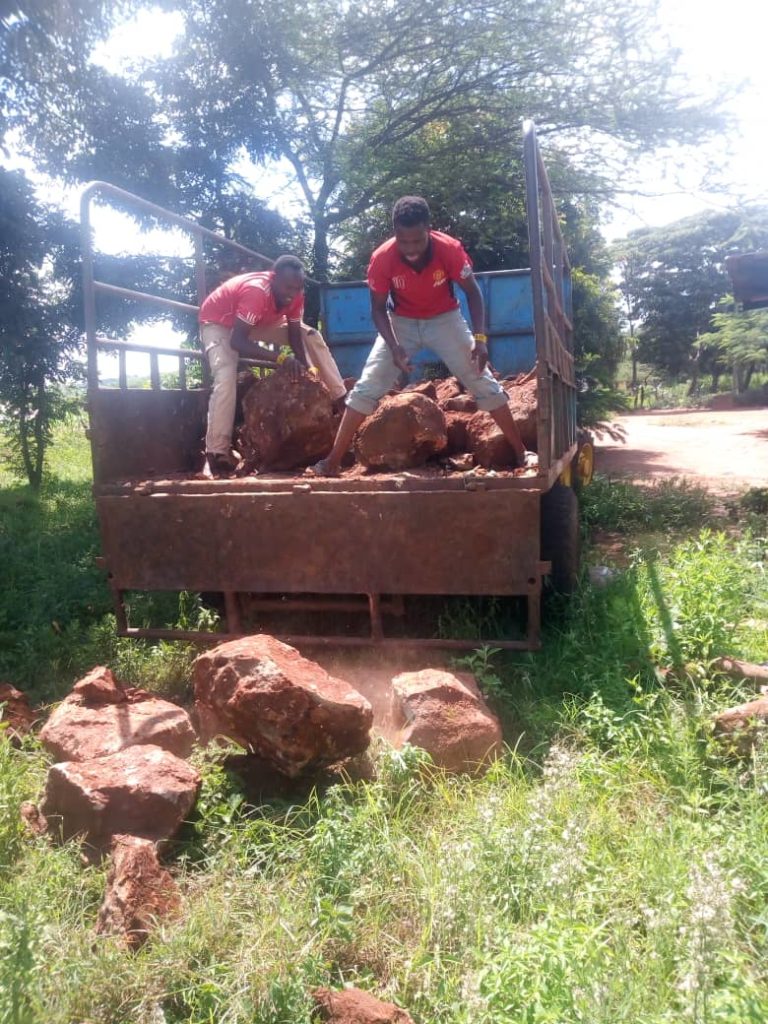
Meanwhile, the roads and water pipes have been repaired. Because trucks constantly got stuck in the mud, we paid higher transport costs.
Therefore, the major infrastructure works were stopped and only the incinerator (small incinerator) was completed.
The old, dangerous, “waste-pit” near primary school, a hole in the ground fenced with acacia branches where all medical waste was burned, is now a thing of the past.
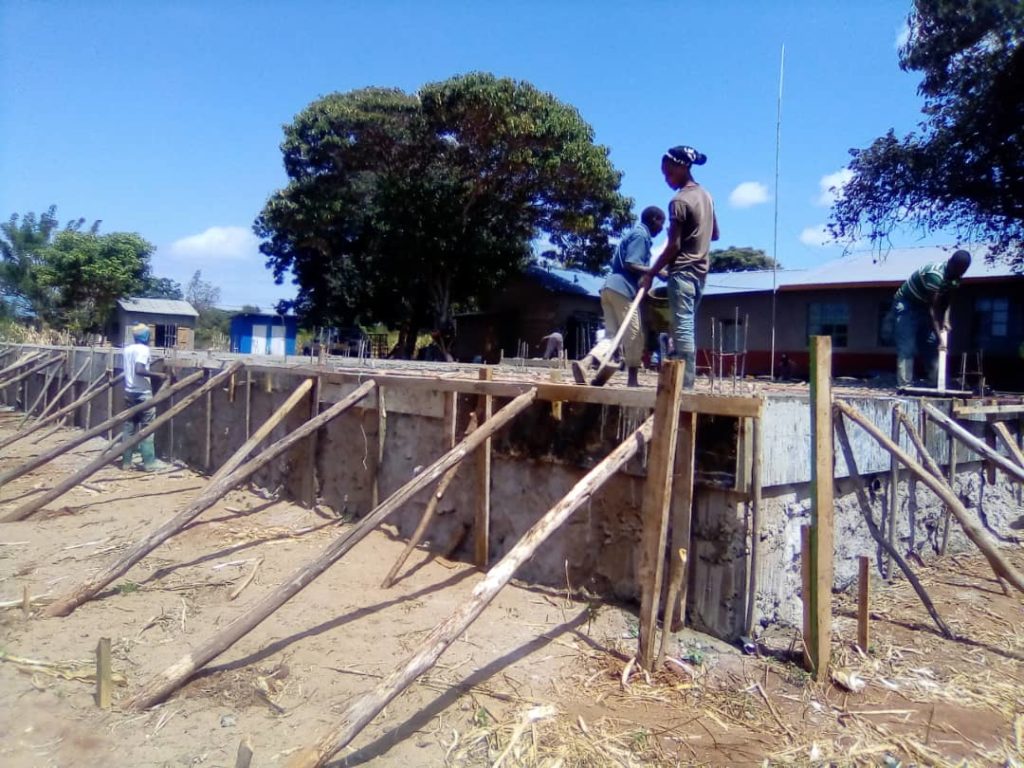

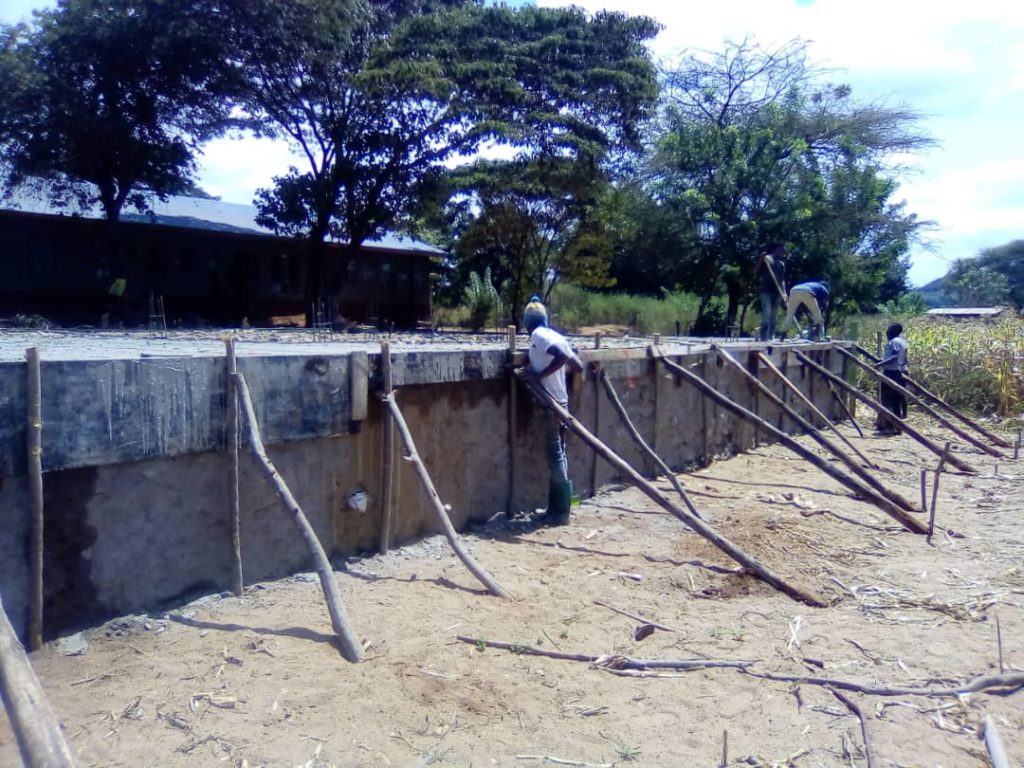
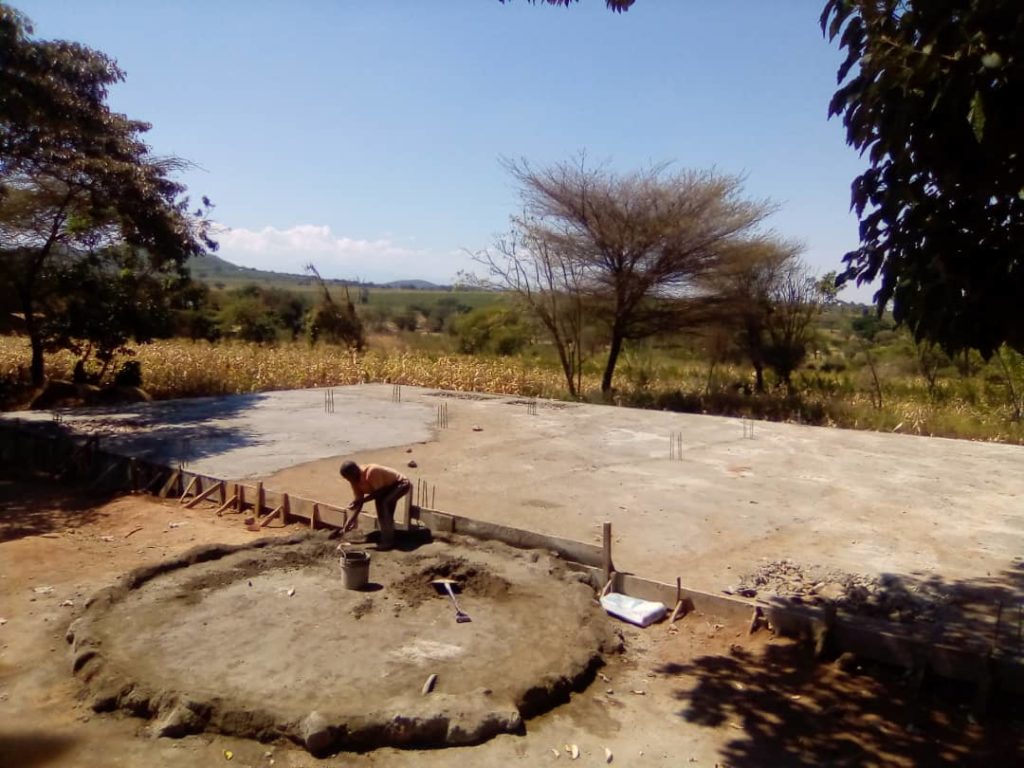
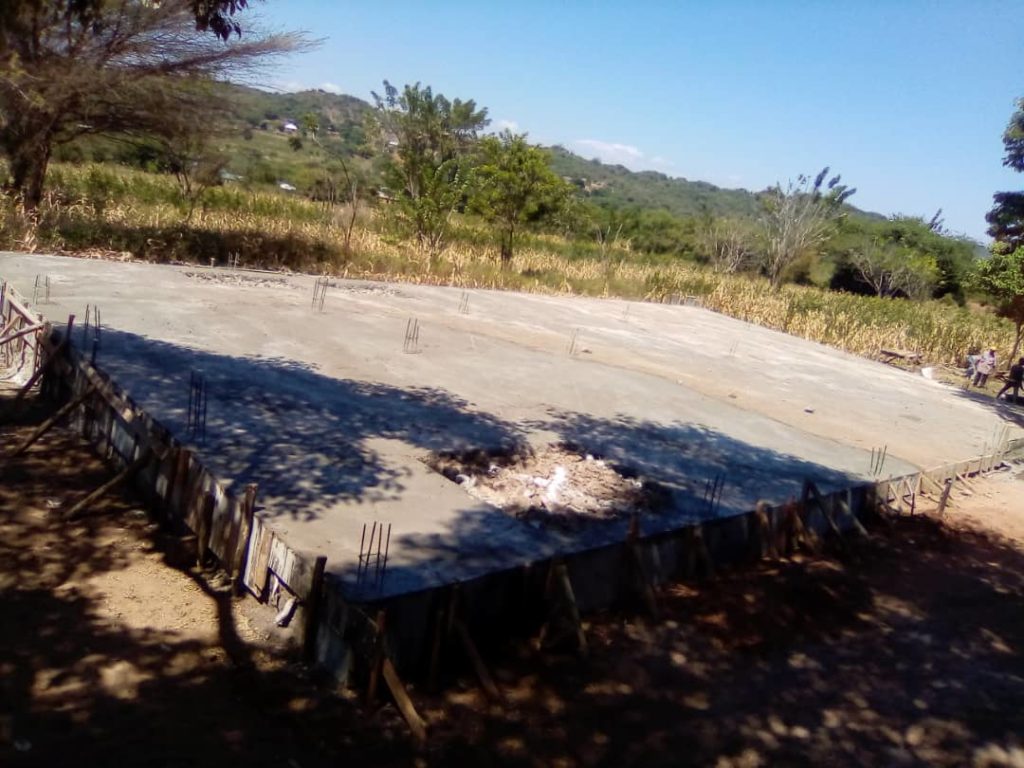
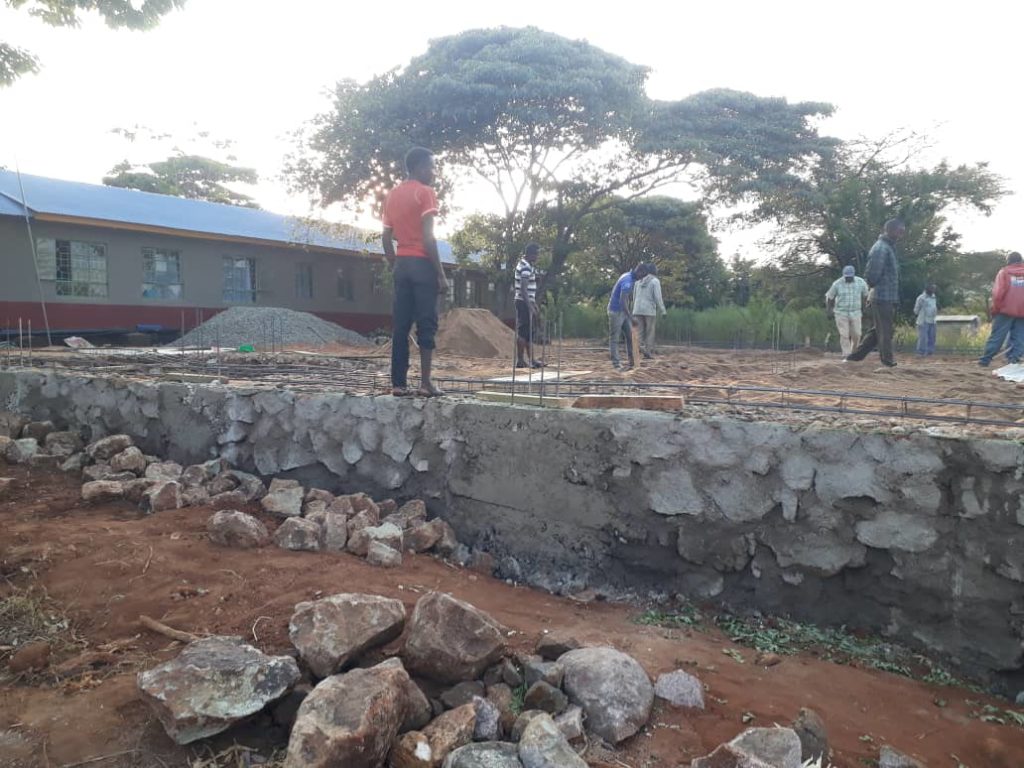
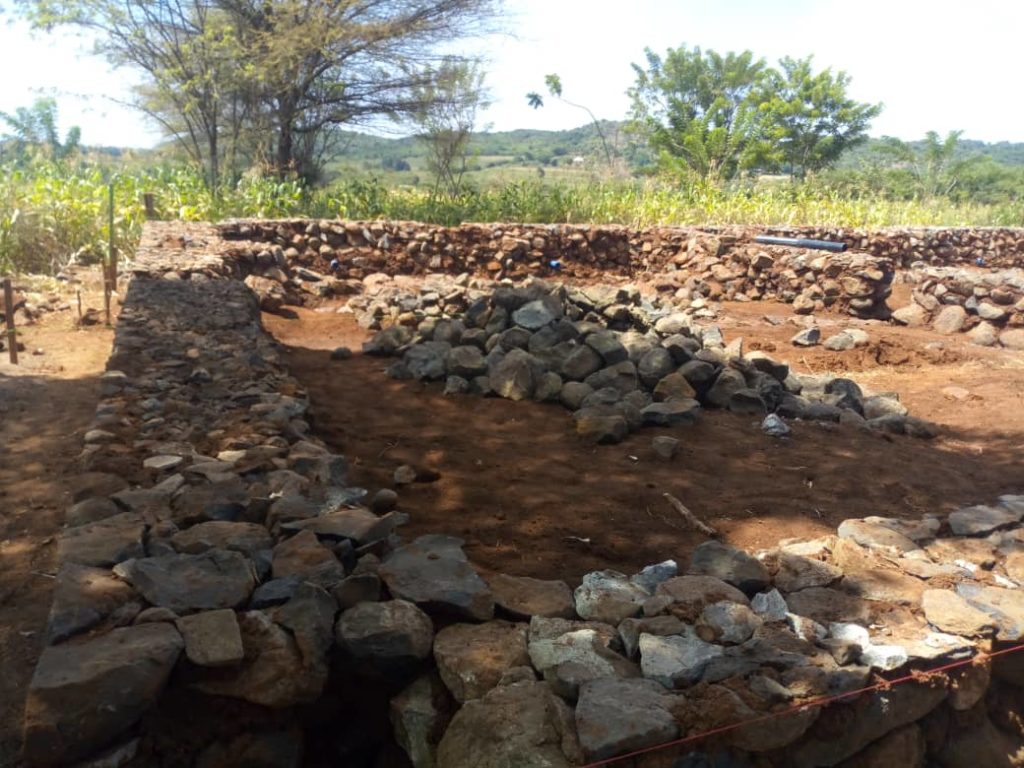

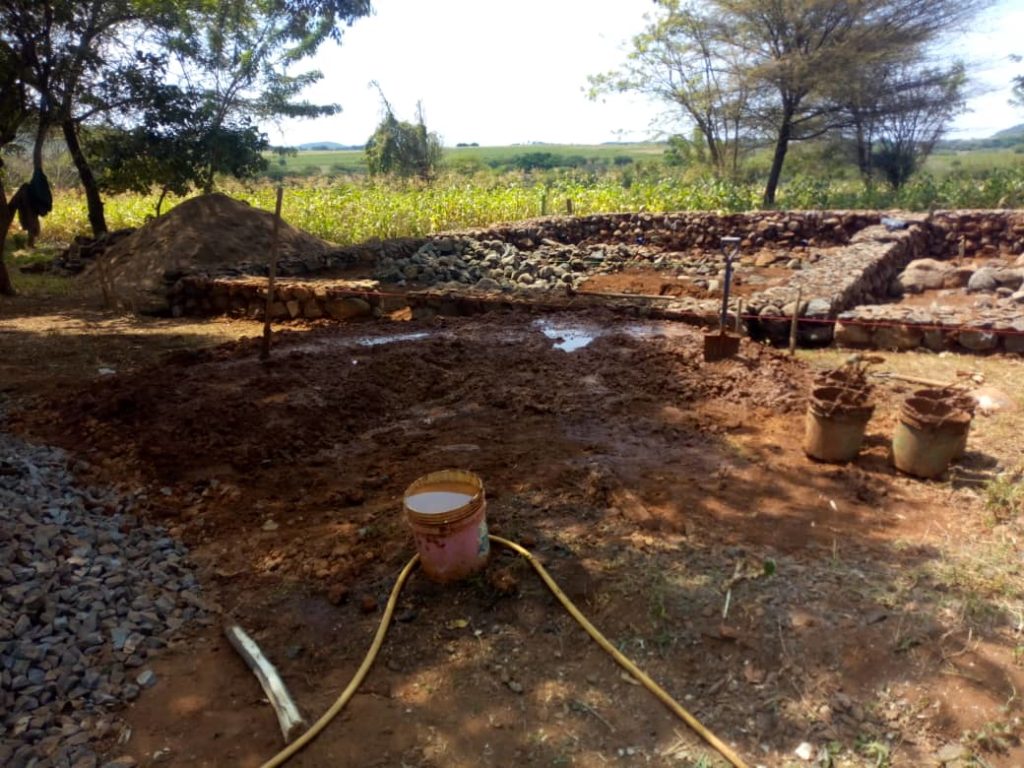
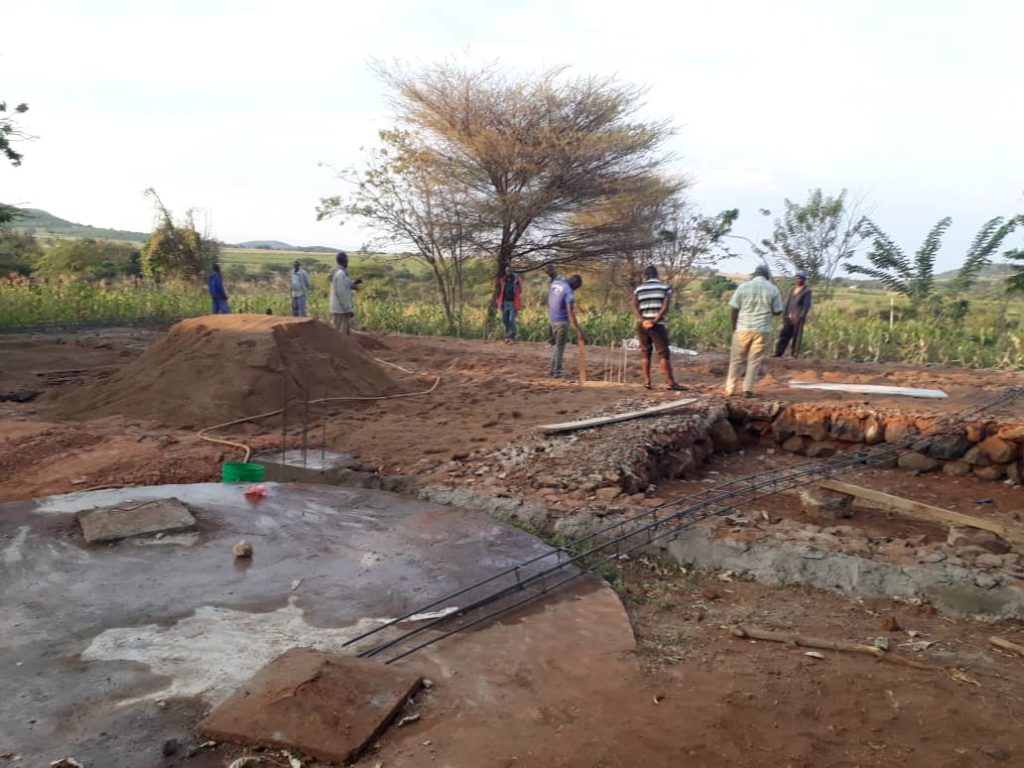
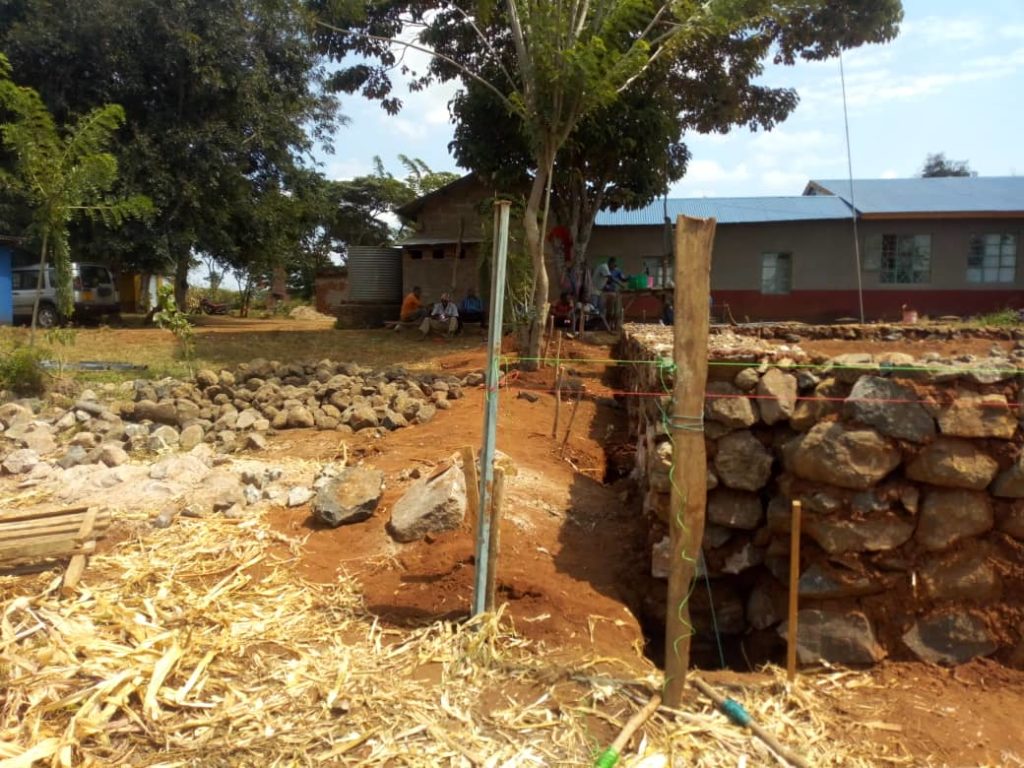
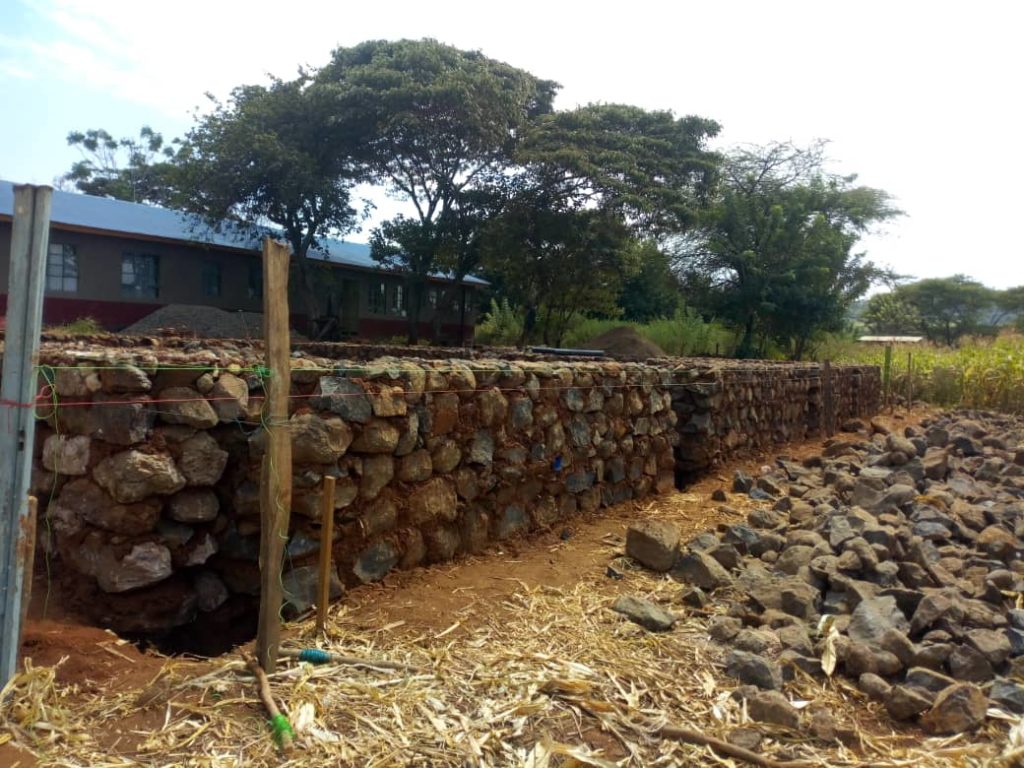


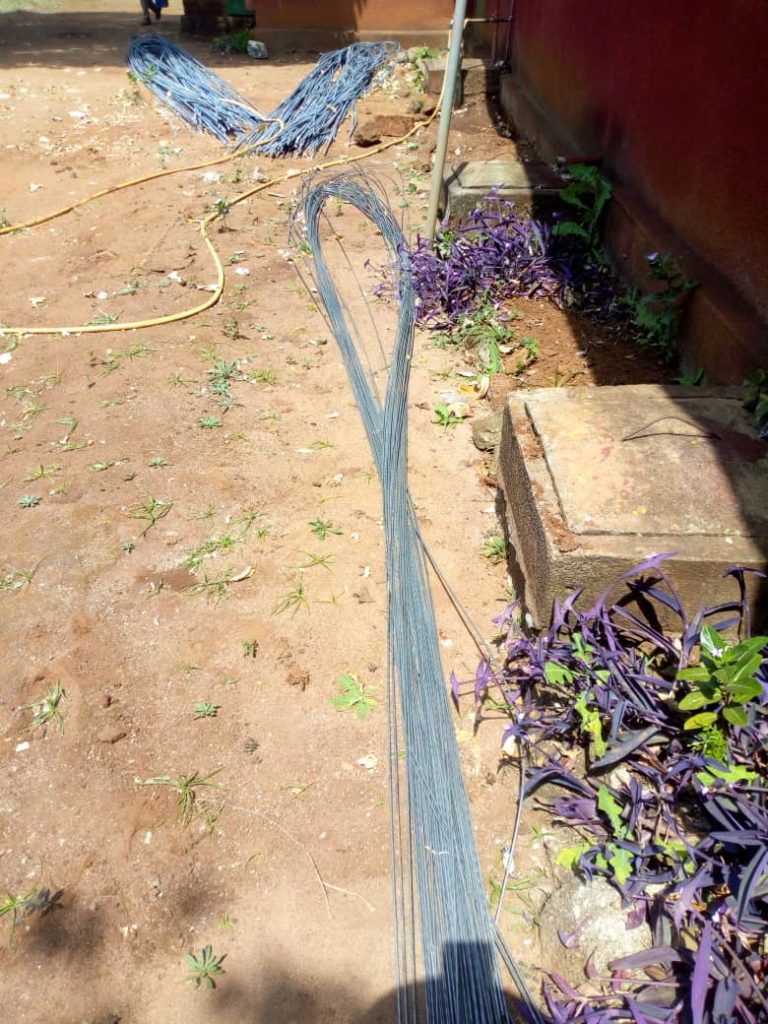

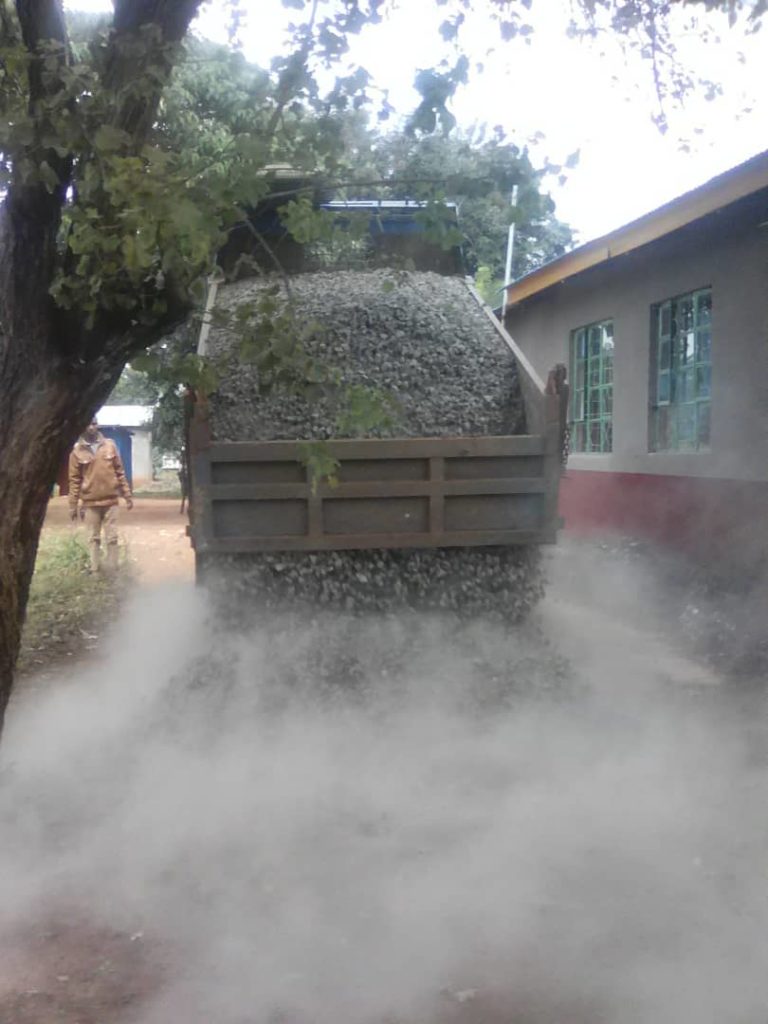
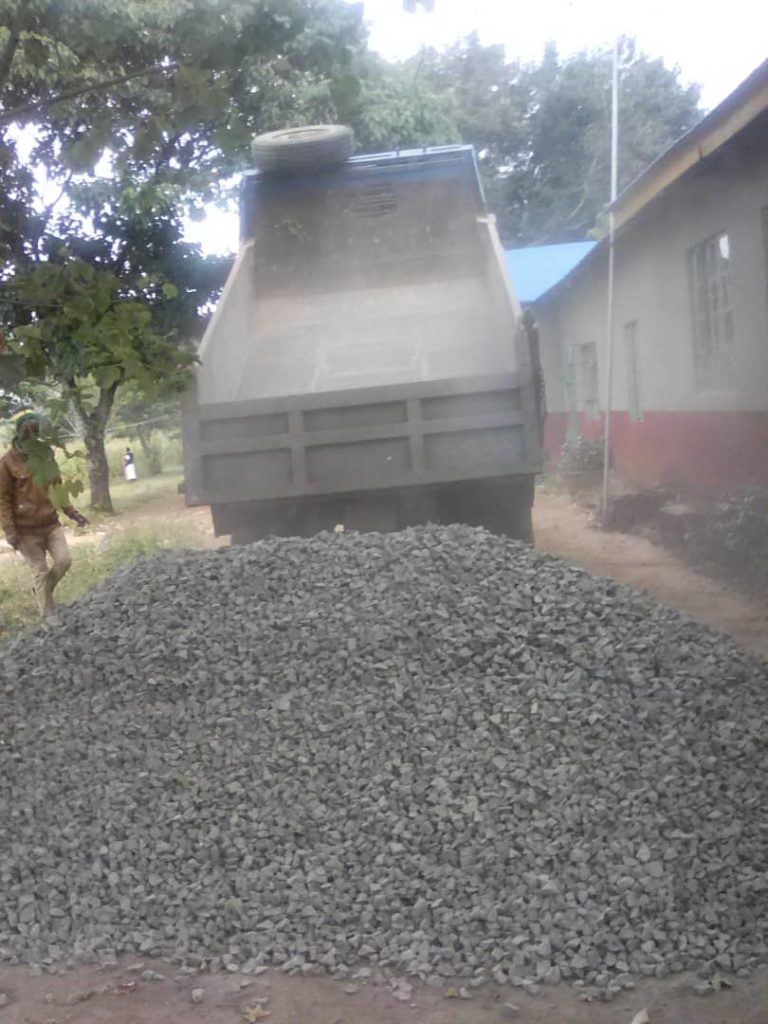
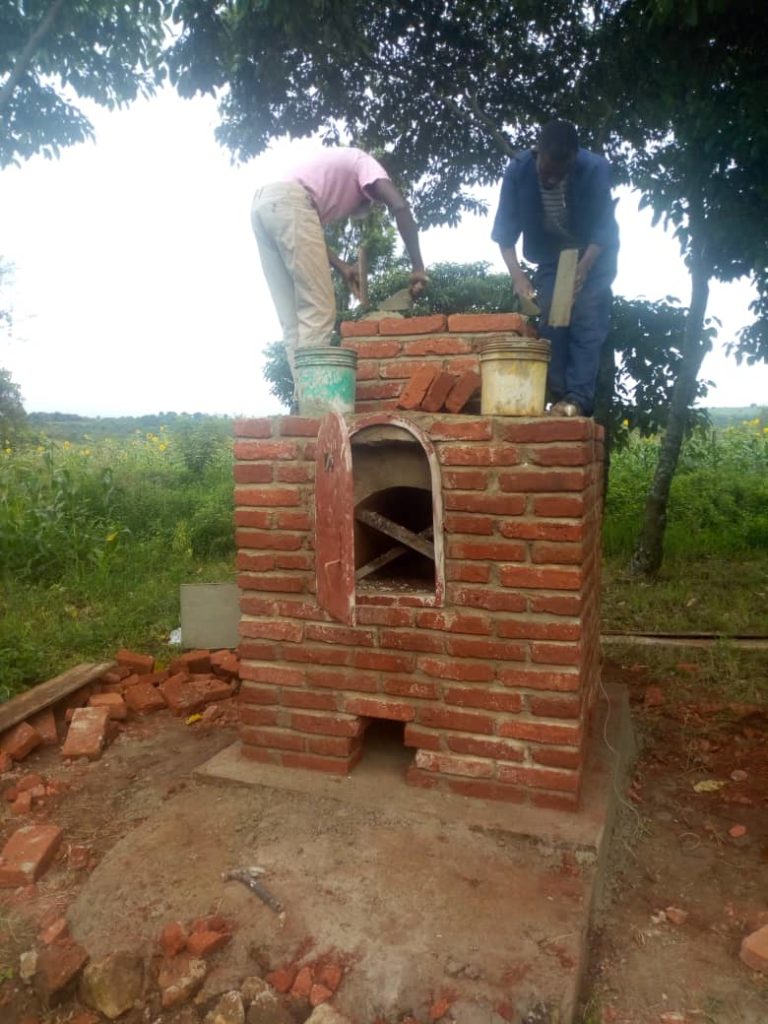
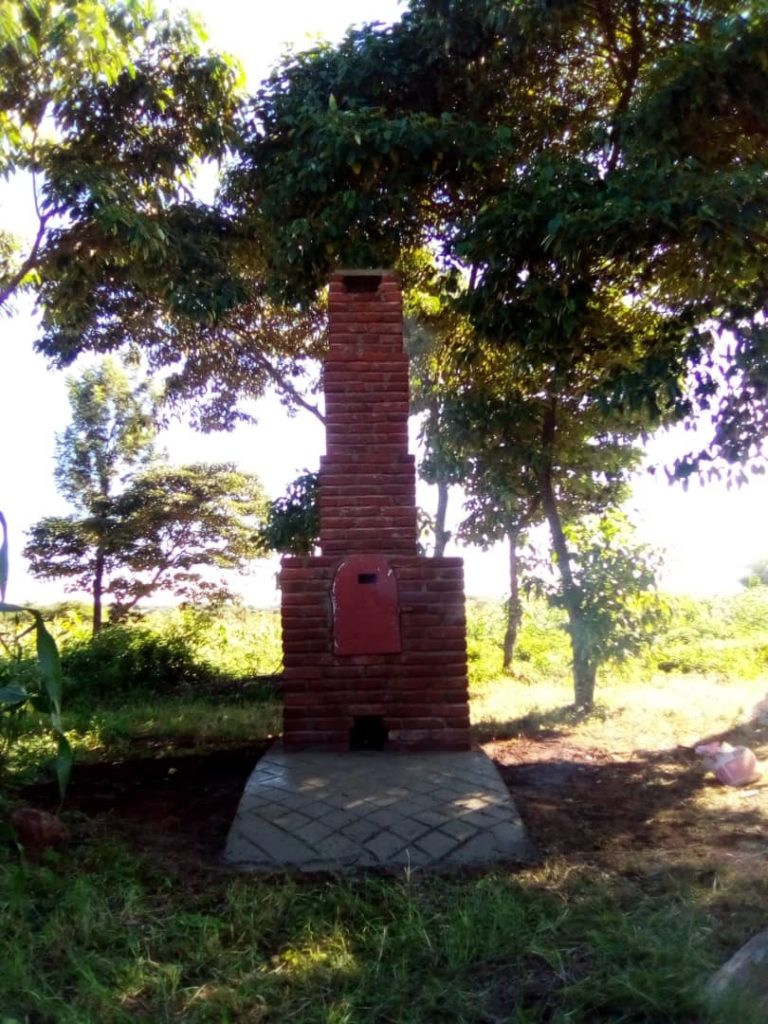
The structural work with the foundation trenches, reinforced structures and walls are completed. The stairs at the entrance are also bricked. Due to the failure of one of the two Tanzanian cement factories, we paid a higher cement price. Due to a greater height difference than expected, a heavier foundation has also been made. A broader central corridor is provided for the purpose of providing training. These factors have led to higher costs for the time being.
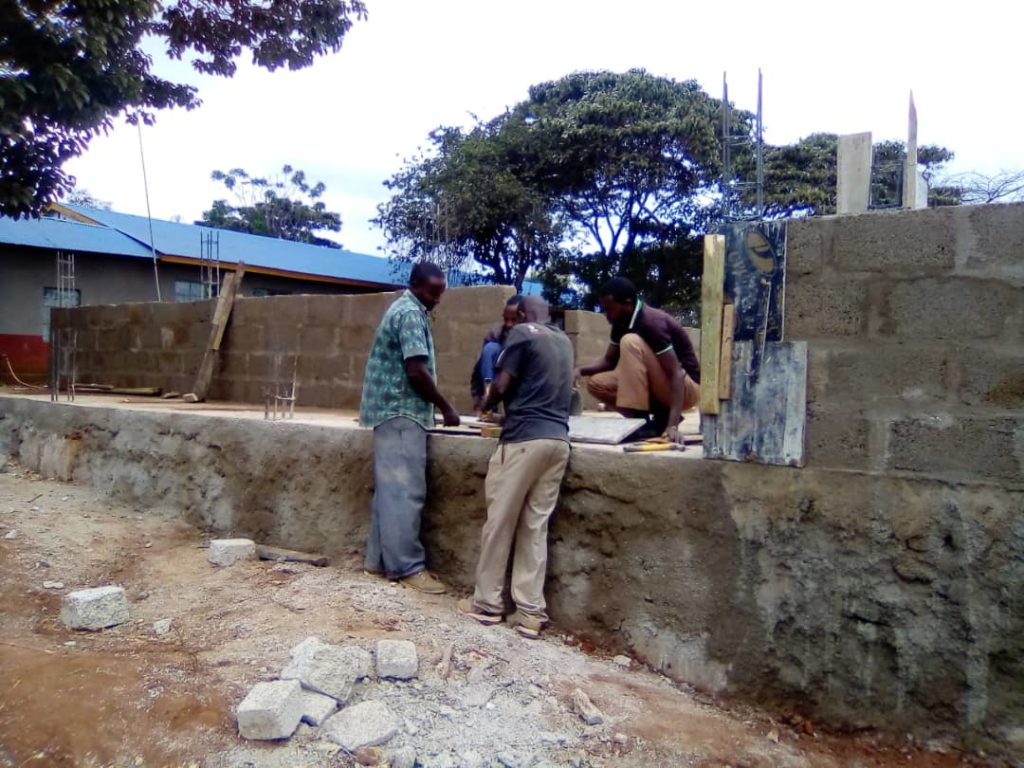
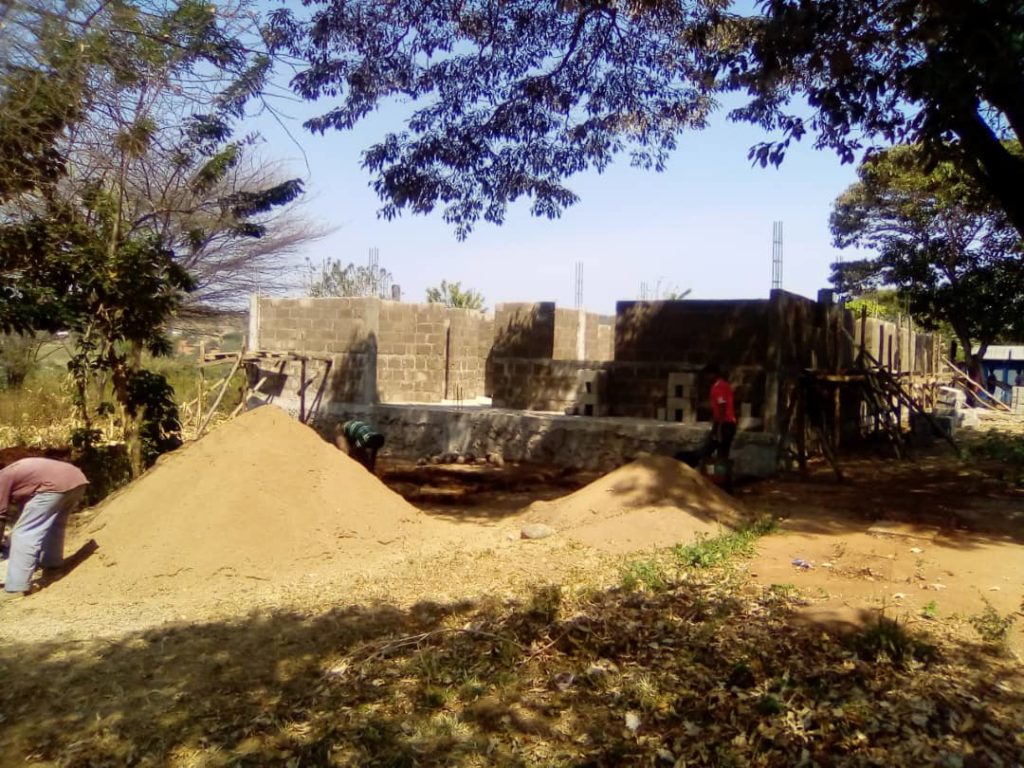
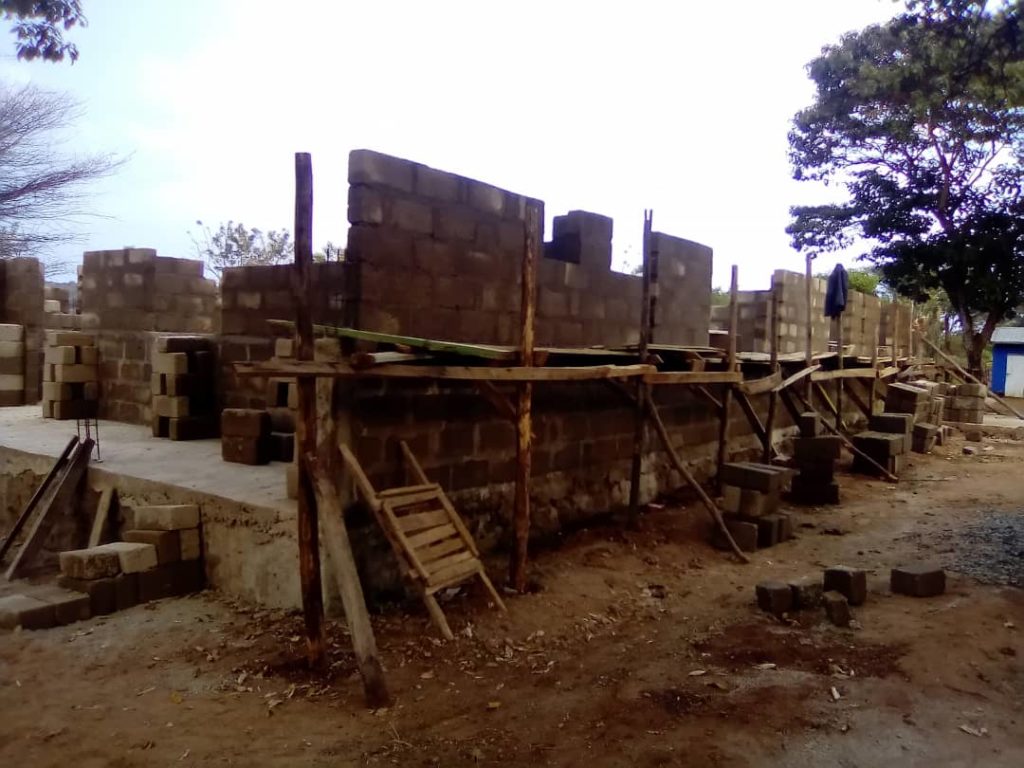
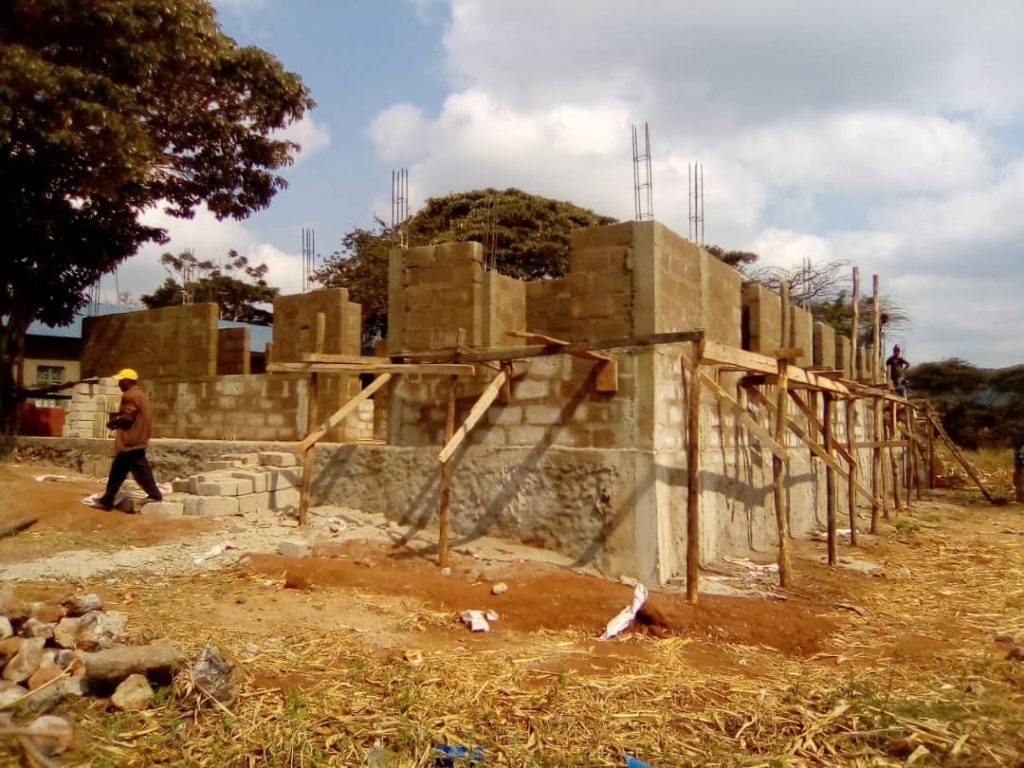
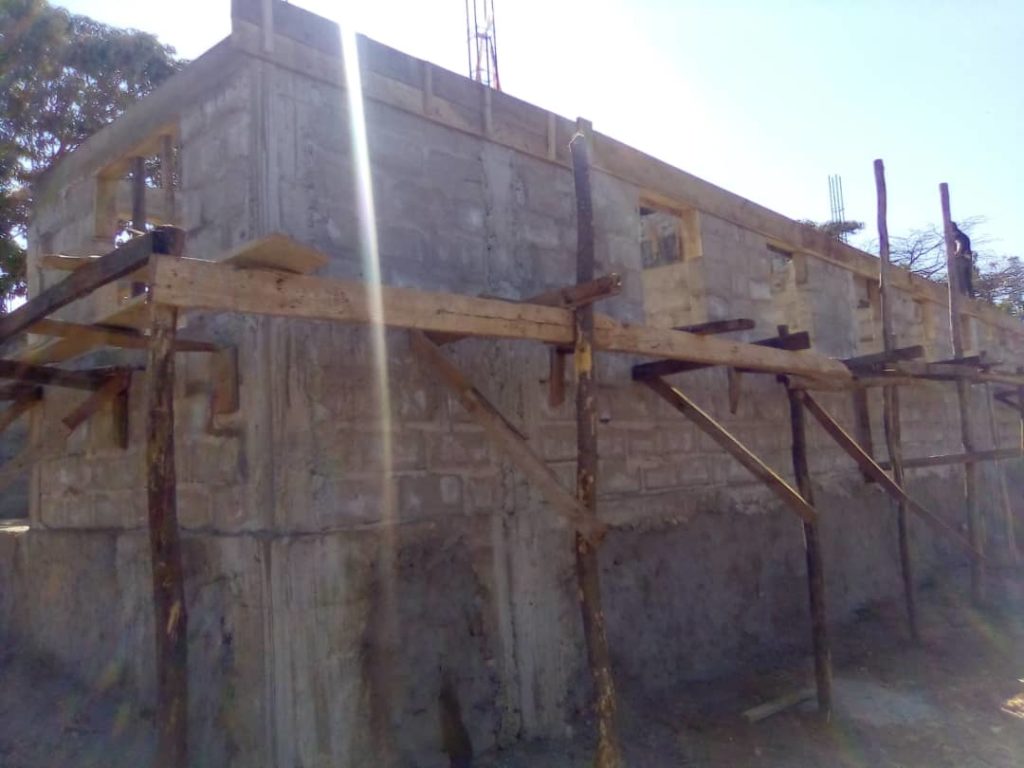
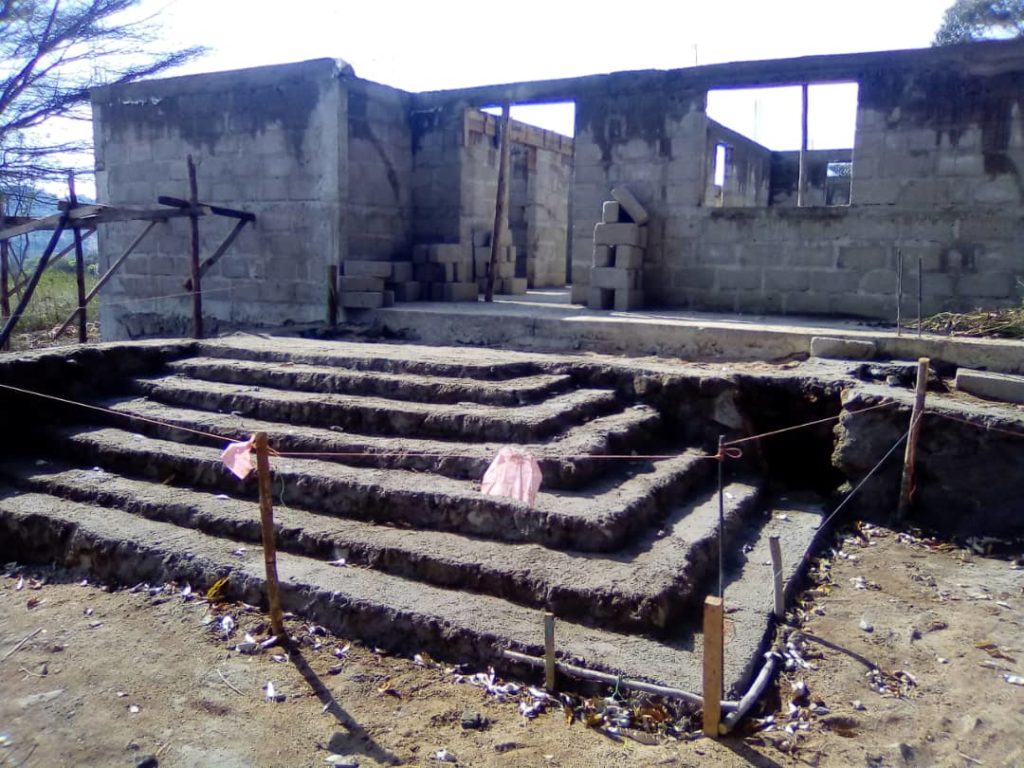
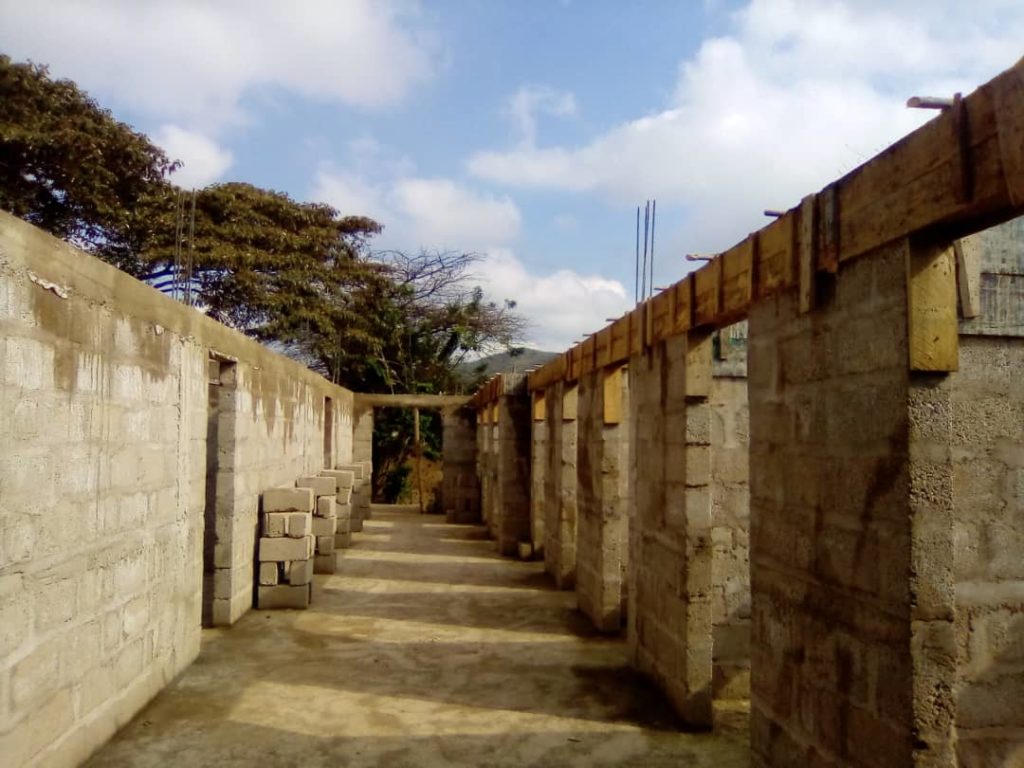
January, February and March, Mieke & Vincent are on site and will support the project.
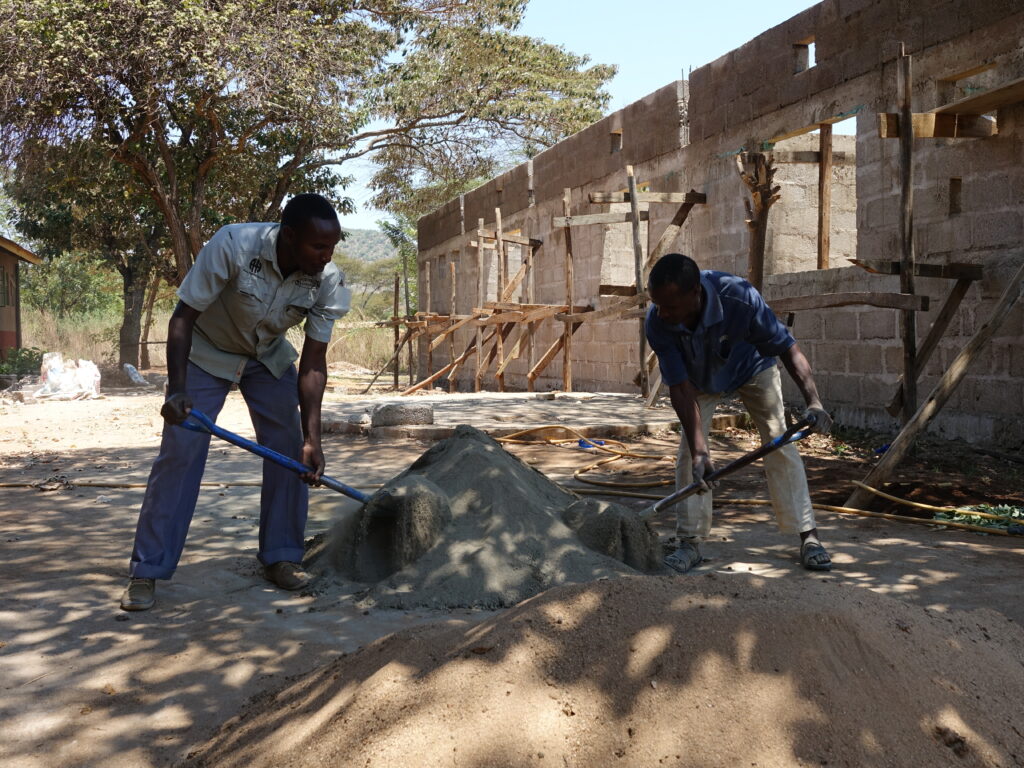
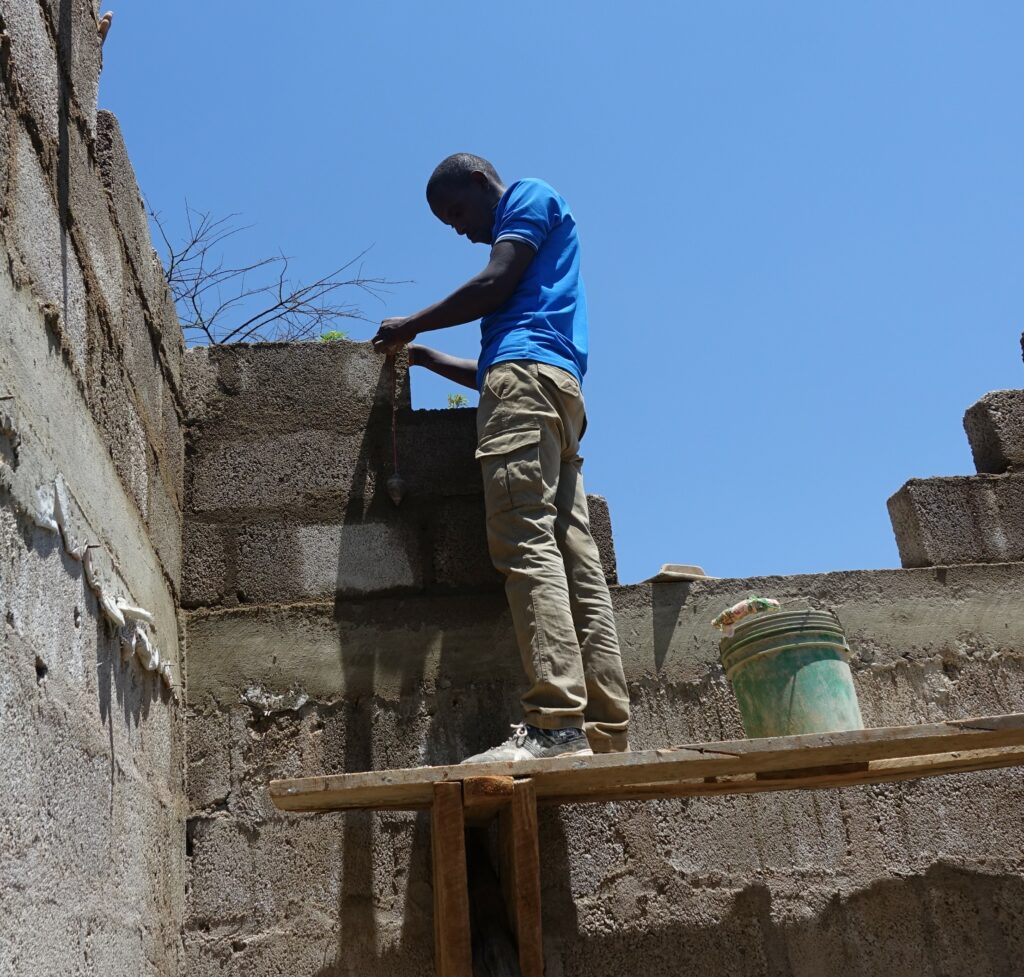
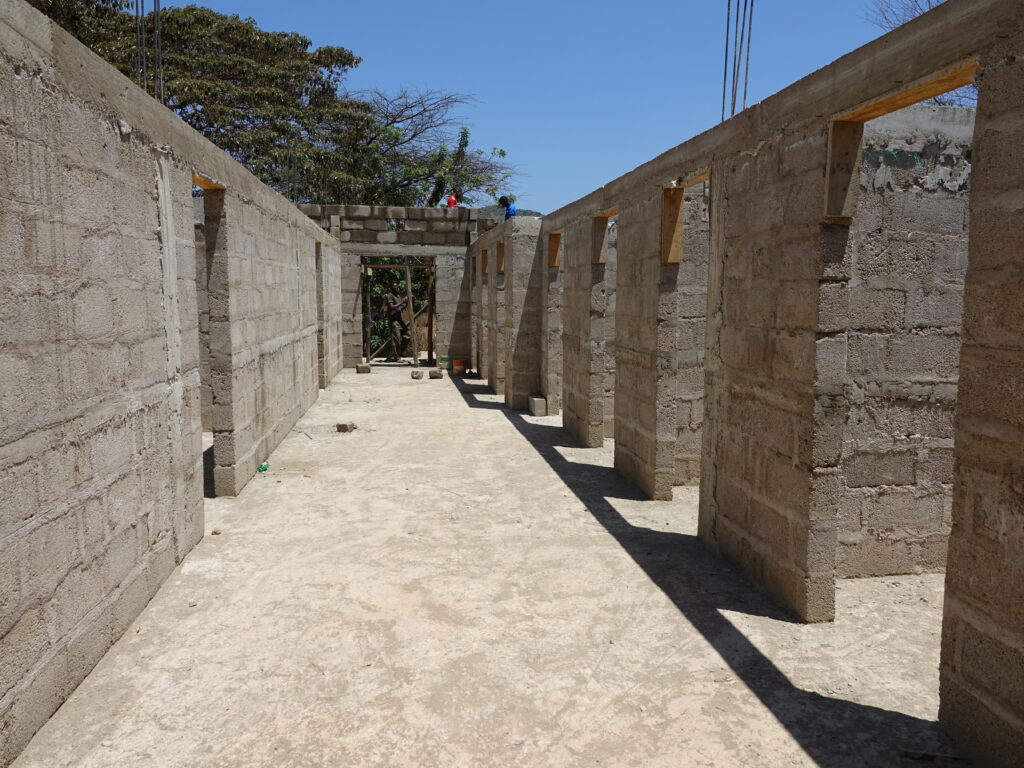
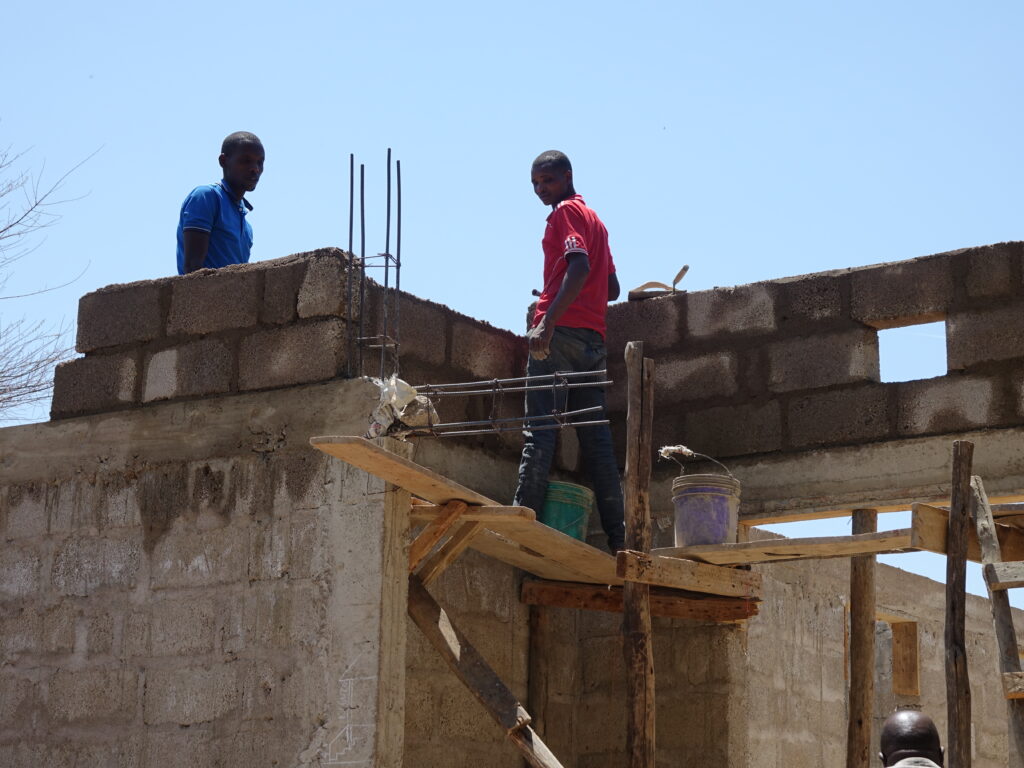
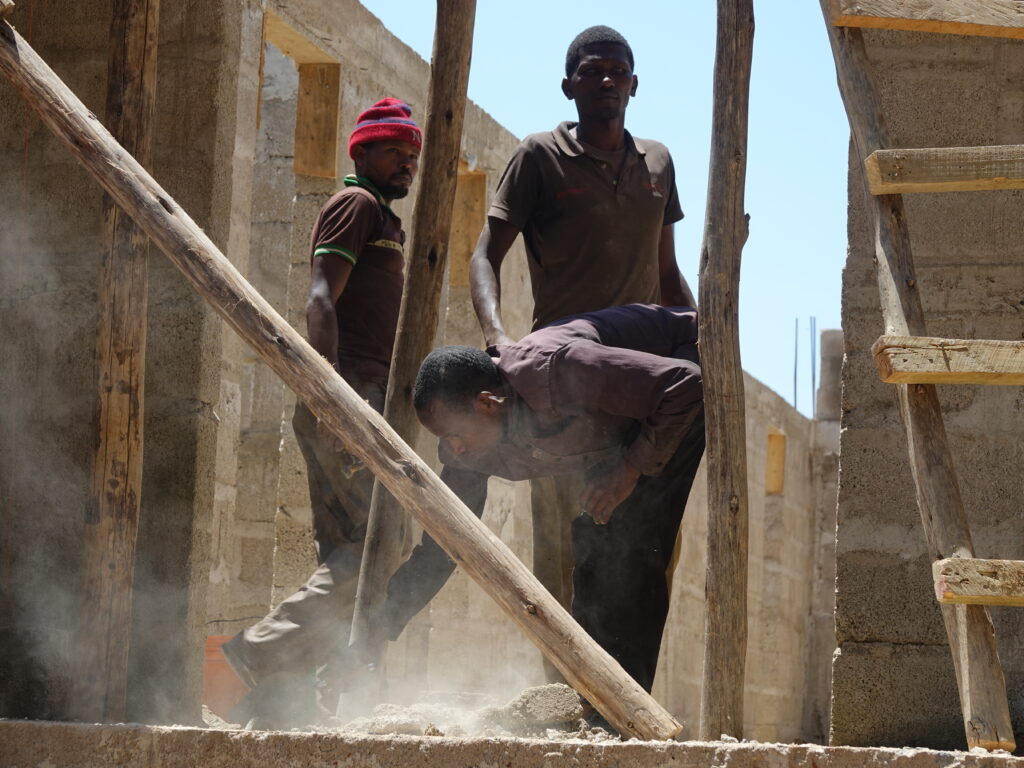
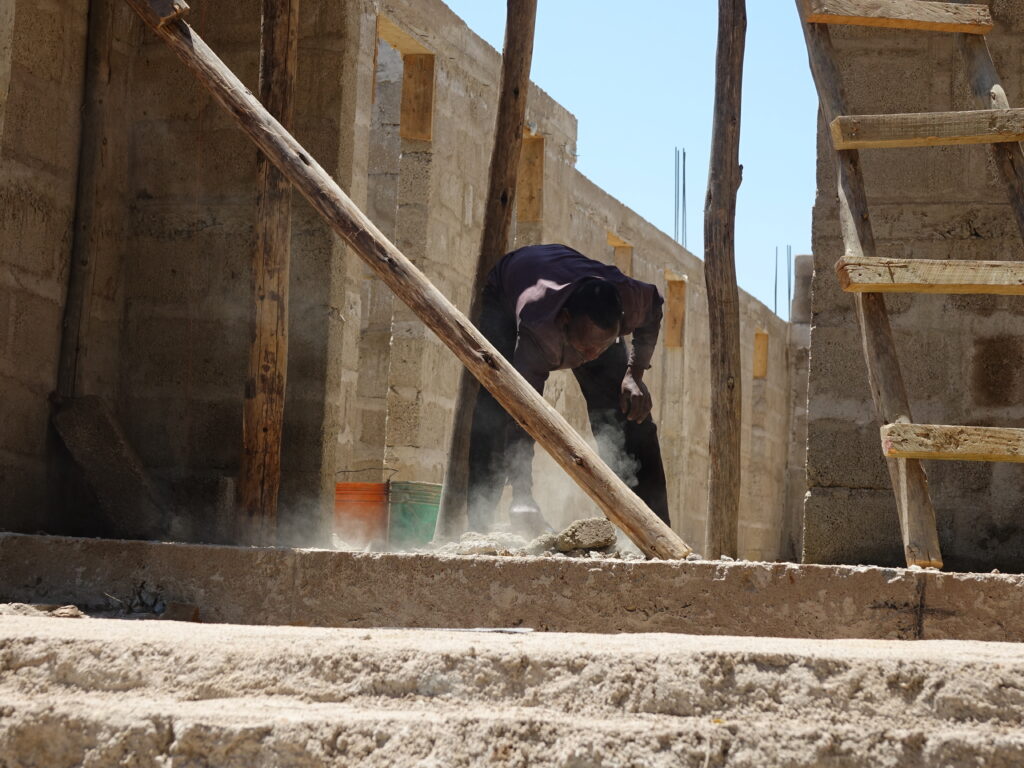
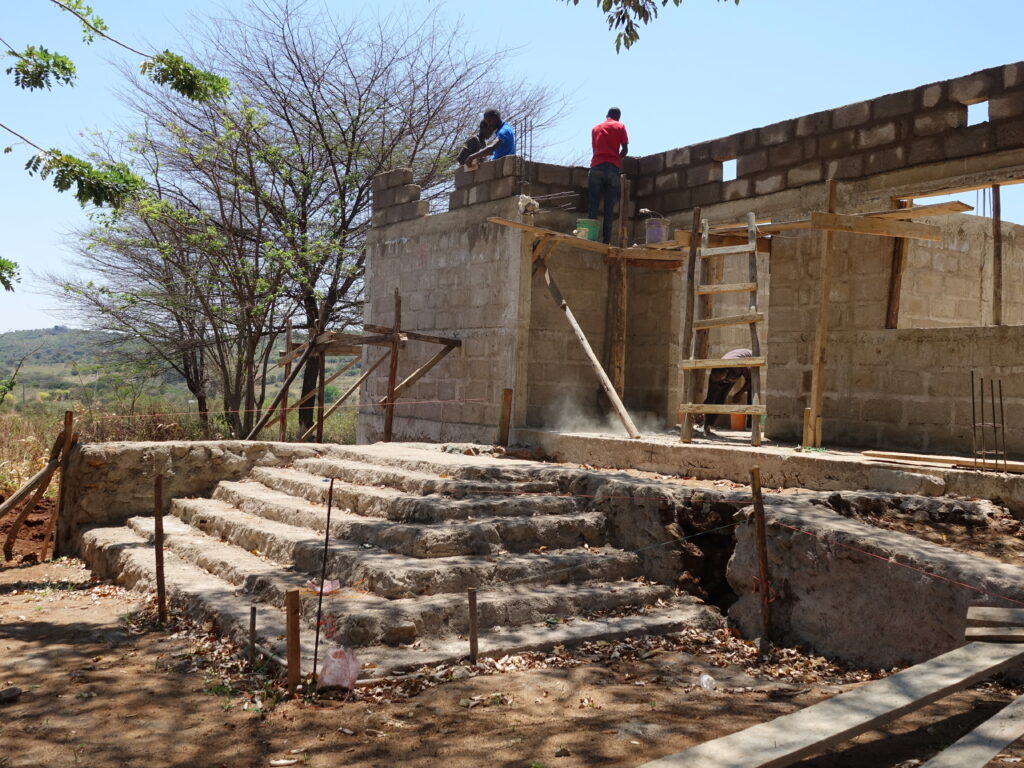
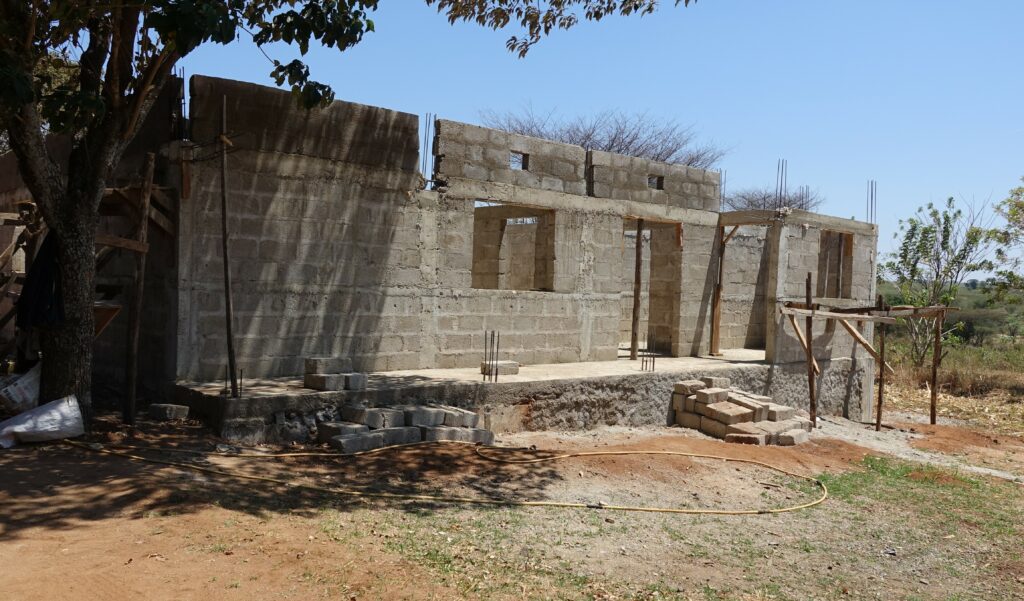
Due to the corona pandemic and Tanzanian political difficulties, neighboring dispensaries and health centers don’t function properly, giving Endallah Dispensary a more prominent role in the rural area and providing care for a larger population geographically, including mobile clinics. Endallah Dispensary is the only health post with a lab and an extensive pharmacy. The latest accounting analysis (March 2021) shows that, since July 2019, the profit of the pharmacy (phase 1 of the project) has been a financial artery for the health post.
The government decided to mutate nurse Felista, which increased the workload for dr. Solomon, dr. Komba, Eliaichi, Yotham and Martha. dr. Simpa, the previous doctor and medical students, including Abin, regularly come to help. Zachayo also assists Marietta, the cleaning lady. Among other things, Zachayo regularly weeds the grass around the post, which limits the danger of snakebites.
The most common diseases are infections of the respiratory tract, urinary tract, stomach, intestines and wounds, STDs, intestinal worms, burns and allergic reactions. Covid19 cannot be tested and there is little statistical research available. It is therefore speculative about its presence and the number of differential diagnoses with non-Covid19 respiratory infections are higher than in Western countries. Face masks and alcohol gel are used if available.
In March a group of French people visited the project. Through crowdfunding, Delphine Laisne supported the project financially and with medical and baby equipment. Merci beaucoup. In the past school year, the primary schools Sint-Maarten Hombeek (parents’ council), Sint-Lambertus Muizen (sponsored hike), Sint-Lambertus Nossegem (sponsored hike) and de Parel Mechelen (sponsored hike) again supported the project, for which many thanks. Because of Corona we made a pedagogical video about the project that was used in the classes. Also many thanks to the general practitioners ‘de Torekens’ and pharmacy ‘Waverdorp’ from Onze-Lieve-Vrouw-Waver for the medication and medical material. Finally, thank you to all the regular and new sponsors who also helped us financially. The donations remain tax deductible.
The corona pandemic, the current political climate, an extreme rainy season and unstable supplies of raw materials are causing a delay of 6 months. The official opening is currently scheduled for early July 2022.

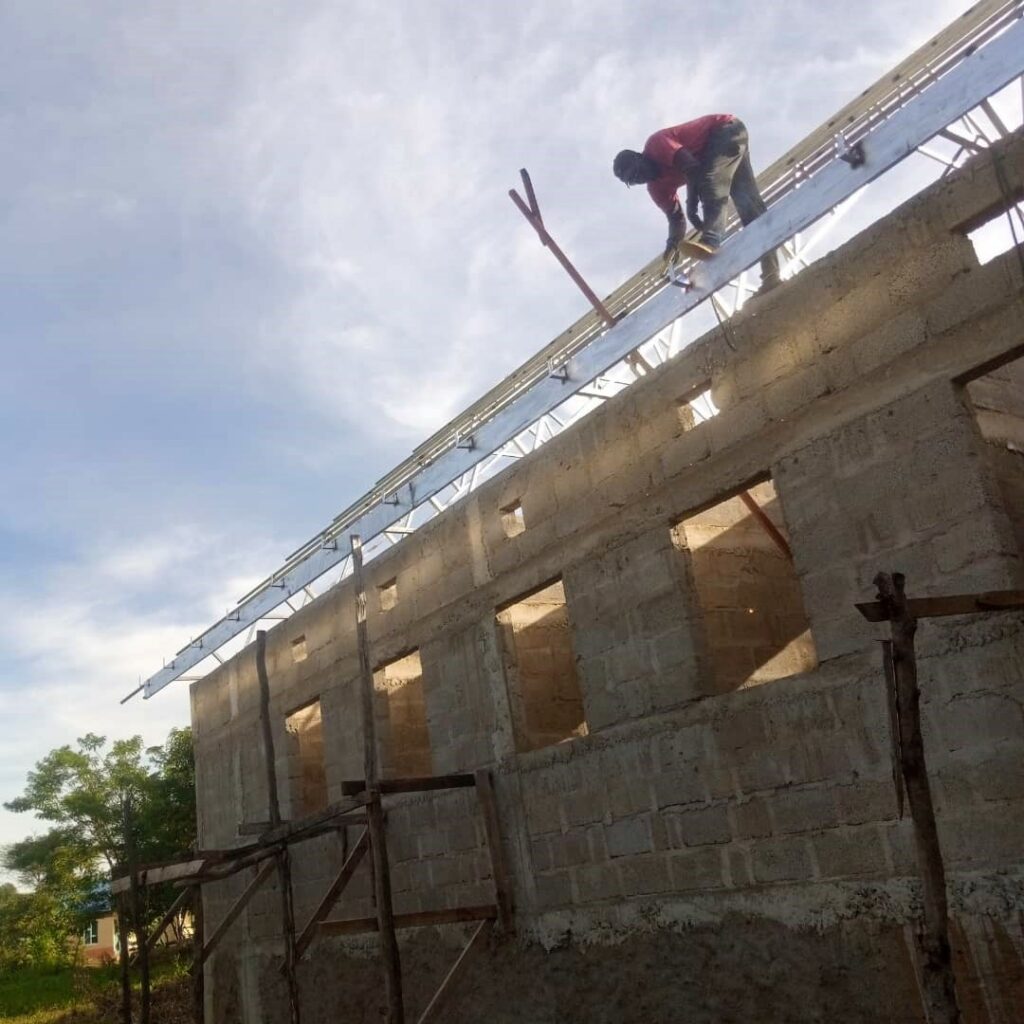
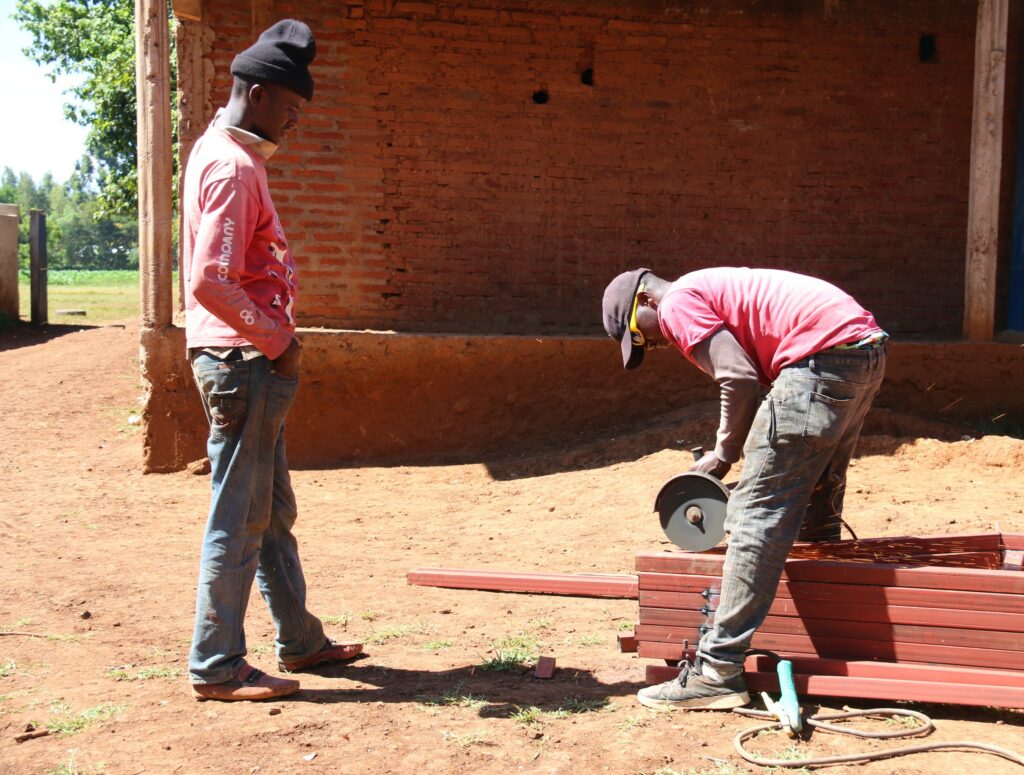
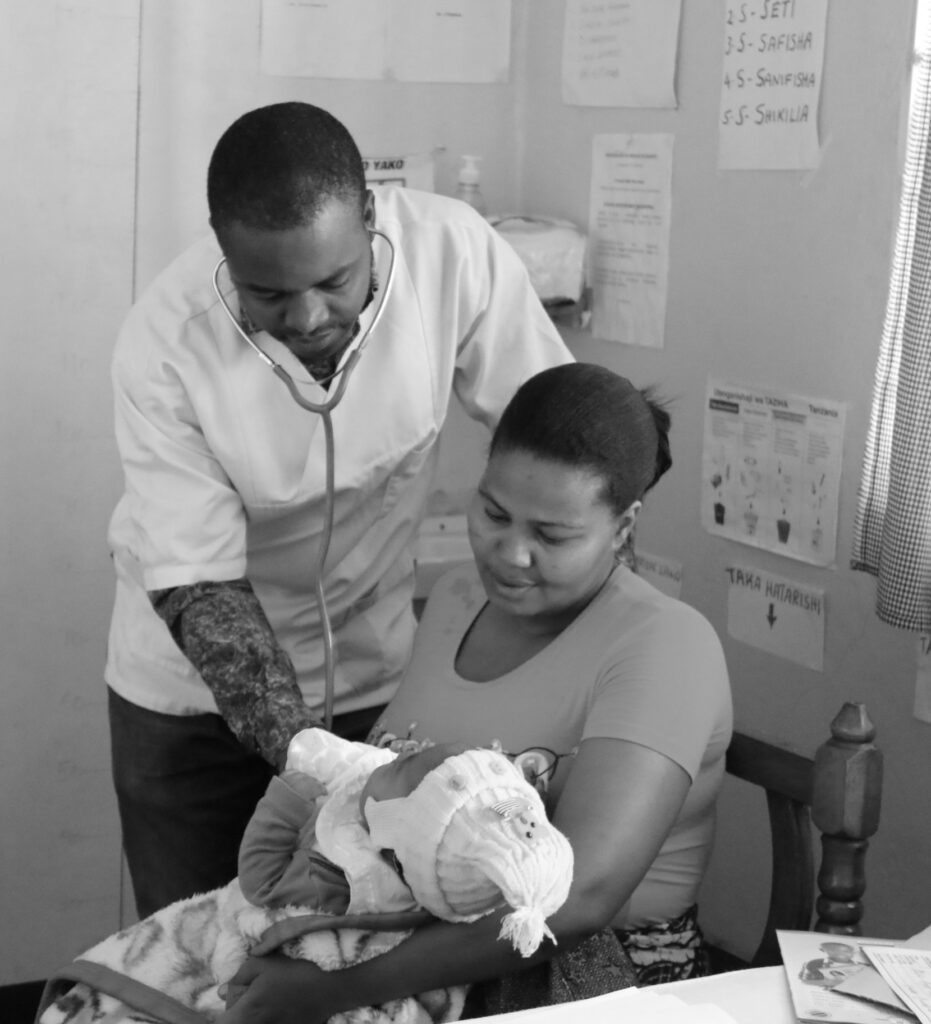


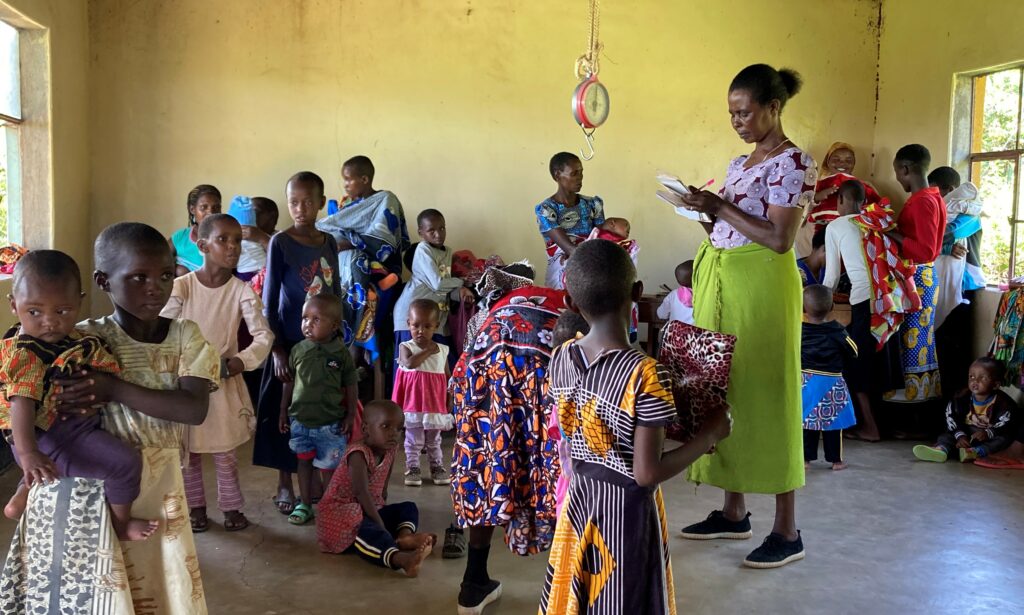
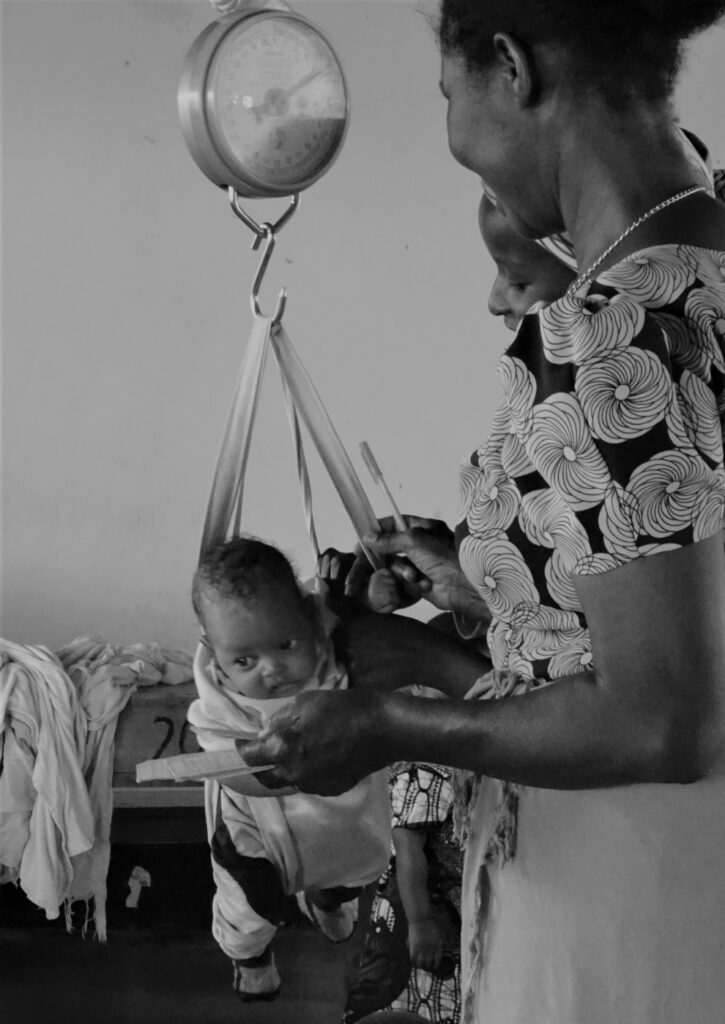

Every day, except on Sundays, the workmen are busy from morning to evening. They are currently finishing the roof and plastering. Water and electricity will follow afterwards.
The government relocated Dr. Solomon to a neighboring heath post. Dr. Komba now takes the lead. Currently there is a delegation of Misingi in Endallah (voluntarily of course and without using sponsor money). Vincent mainly mans the lab. Lab technician Martha has been absent for several months due to illness. He also works with the team of the dispensary on, among other things, stock management, accounting and the improvement of the lab. Mieke mainly works in Endallah Secondary School (see below).
Nele, a voluntary doctor, joins Mieke and Vincent. She supports the RCH clinic (Re-productive and Child Health). For the first time in years, during her vacation weeks, nurse Eliaichi can leave the village for a long time and visit her family in Moshi.
Partly because of our support, but mainly because of Dr. Komba, Eliaichi, Marietta, Martha, Yotham and Zachayo, Endallah Health Post can take care for villagers of Endallah and neighboring villages. For surrounding dispensaries it is difficult to keep their heads above water and function less well. In Endallah, improvements are noticeable in various topics: hygiene, sterility, cleanliness, efficiency, continuity of care, transfer options, etc. During village meetings, patients express their satisfaction. The number of care recipients is therefore increasing.
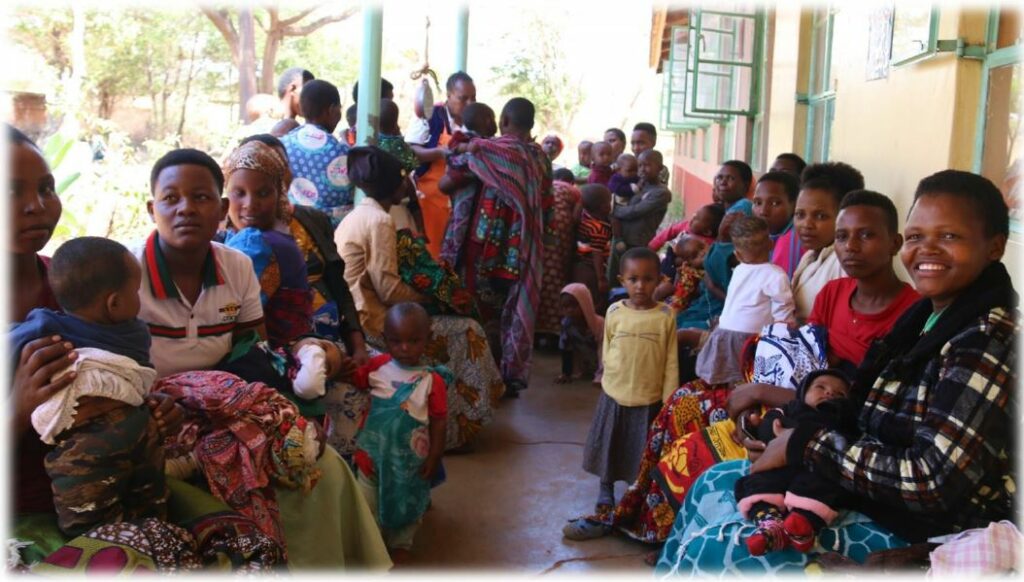
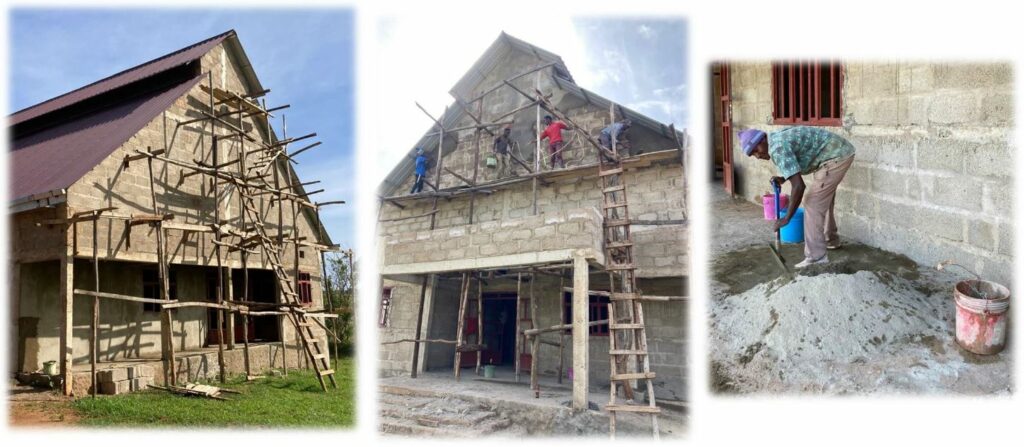

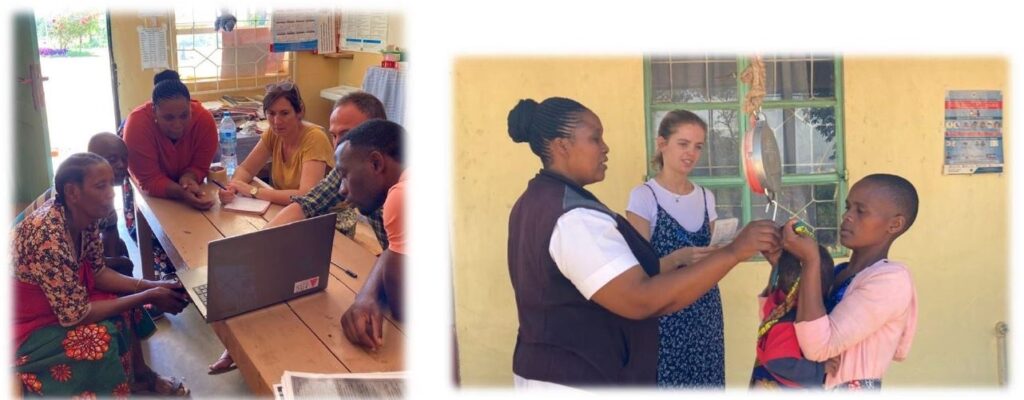
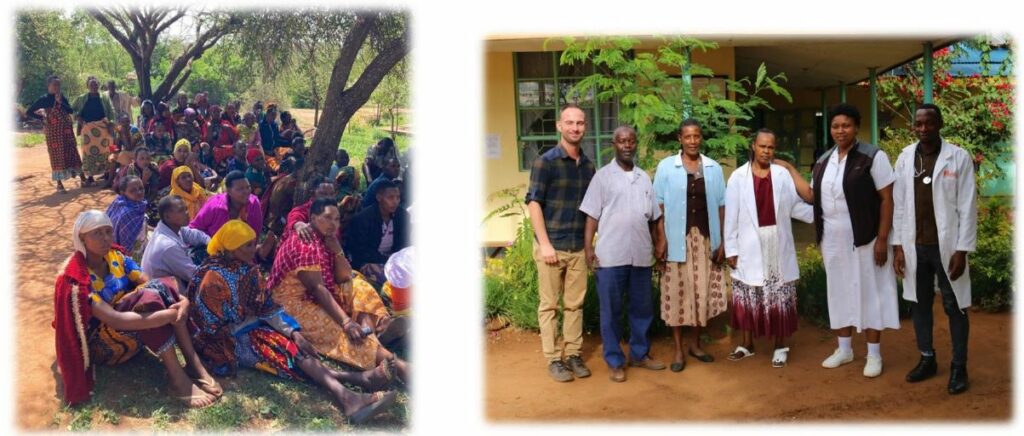
The construction and so phase 4 of the project have been completed. This was celebrated festively and ceremonially with the necessary speeches, together with the entire Church Board and the village council. Also Israel Natse, former Member of Parlement and from Endallah, was present. Elibariki, the project coordinator, proudly showed the guests around. “Another beautiful and sustainable project, a result of years of close cooperation and solidarity. A very big and crucial step in caring for our mothers and babies” (…).
The building has both electricity and water connection with sufficient showers and toilets. In the whole ward (group of villages), this will be the only maternity ward for several thousand villagers living in the countryside.
Phase 5, the furnishing, will start next month. With the staff, Elibariki (project coordinator), Dr. Beatrice (Supervisor Maternity Ward Karatu Health Center) and Dr. Heriel (doctor in charge Karatu Lutheran Hospital) we made a list and requested prices from 3 large Tanzanian companies: 2 private and 1 government company. We selected the articles based on price, quality, delivery time and fitting within the ‘local health system’. These will be ordered next week and normally delivered within two months. We also reduce the price by purchasing some items locally. Finally, the financial and management plan was drawn up with the local government. We want to be able continuing taking care also for the poorest.
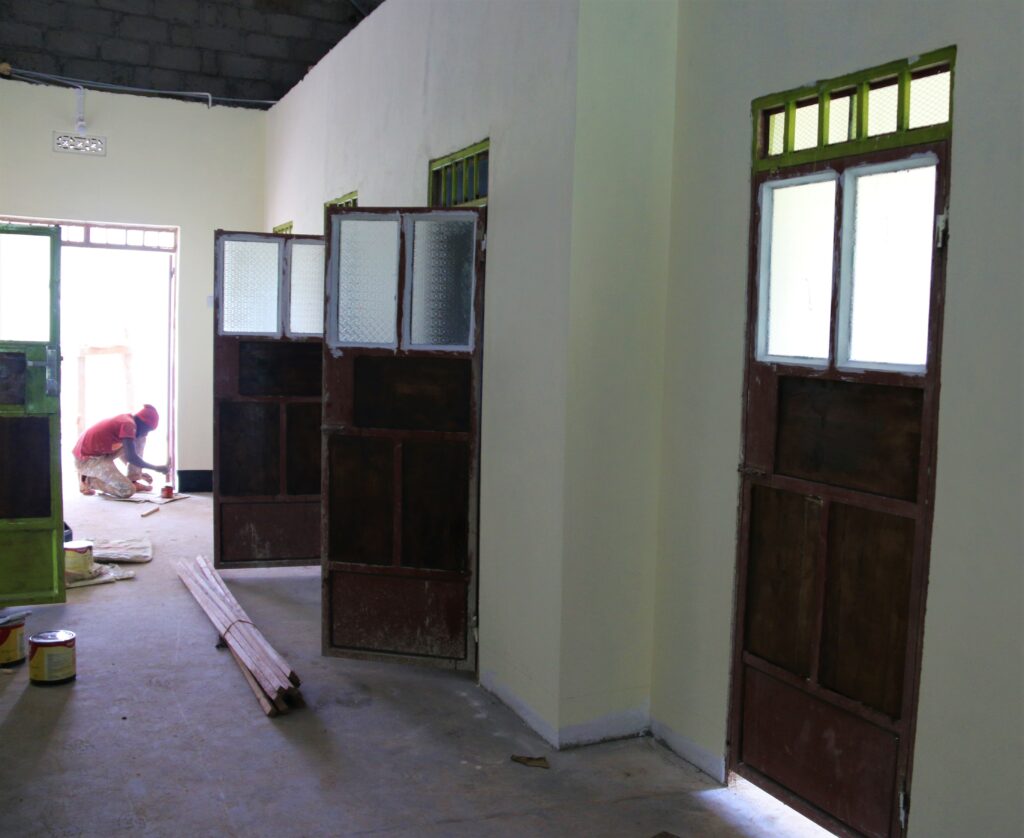
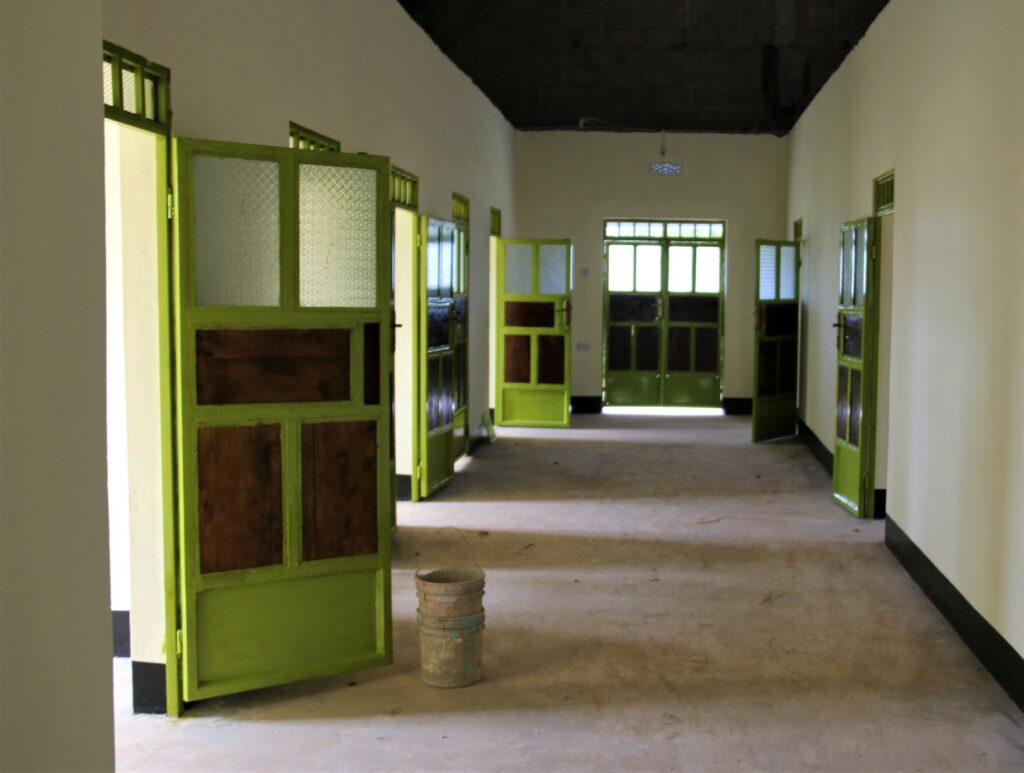
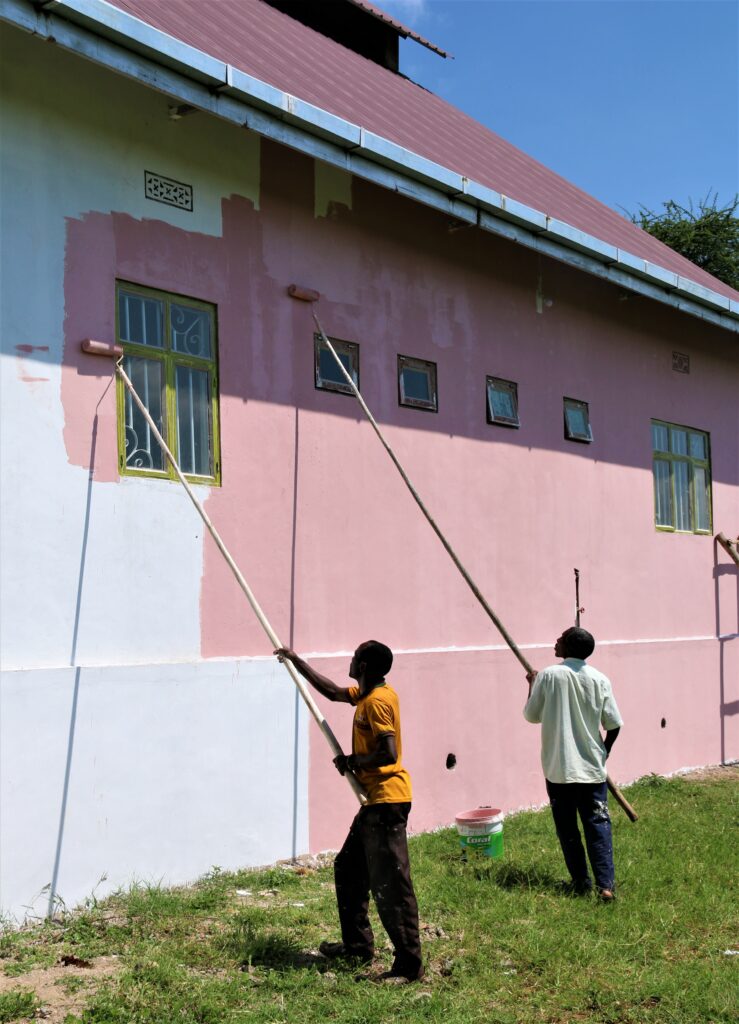

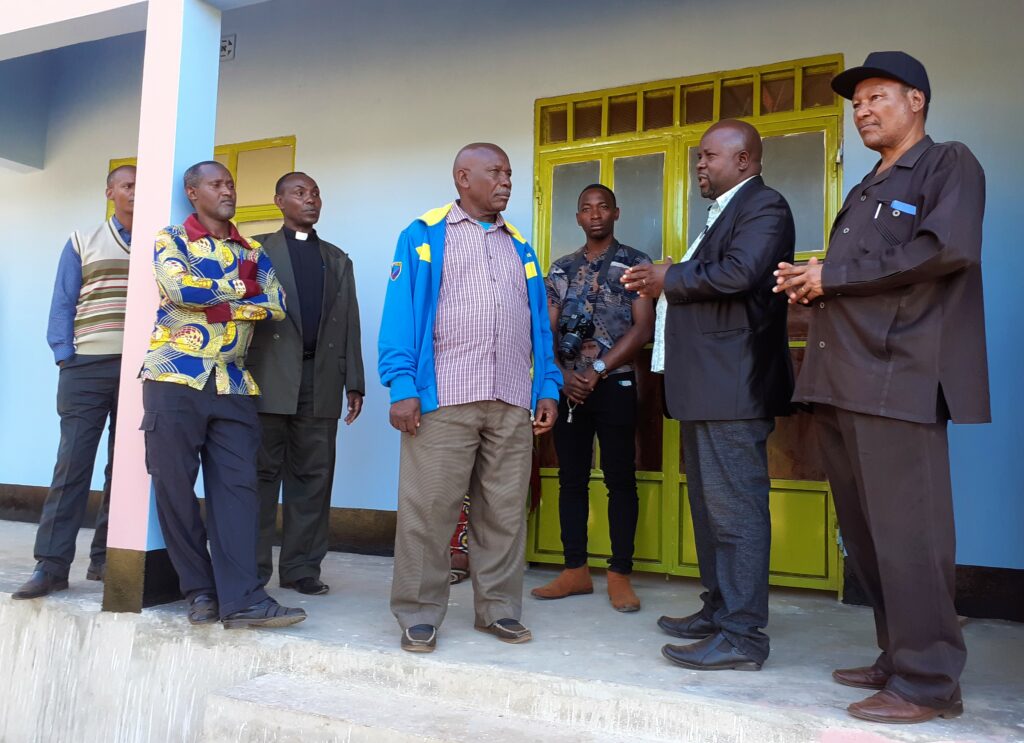
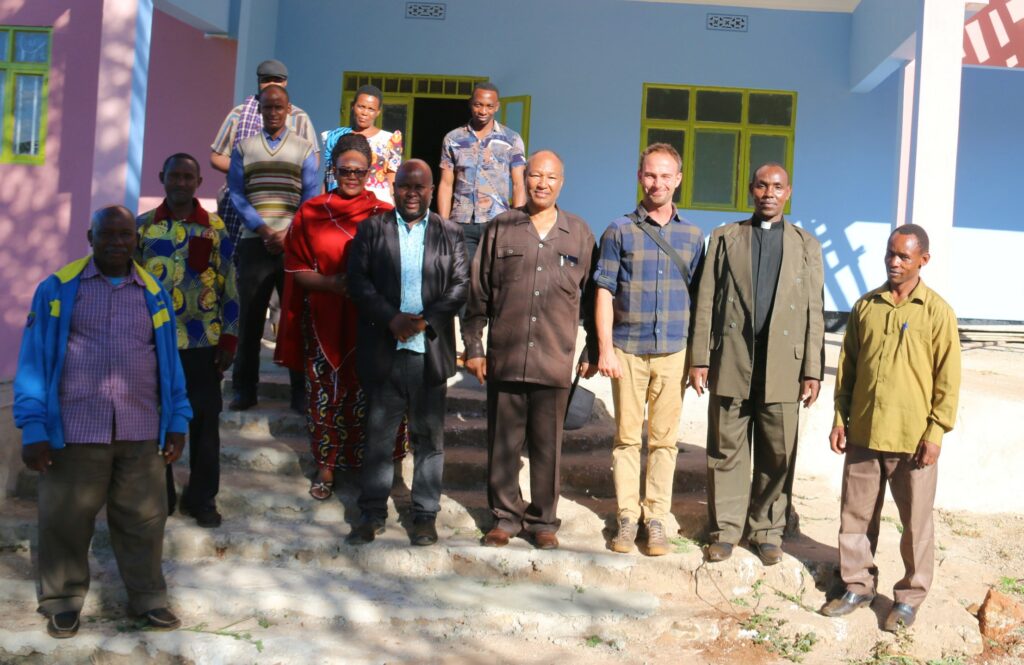
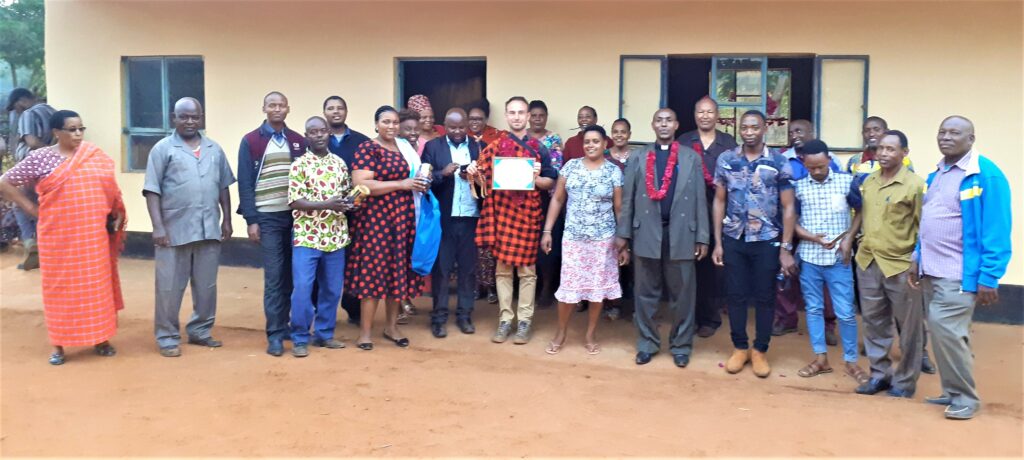
Total cost: 4.052,38 EUR
Schedule: Completed (July 2022 – March 2023)
This phase will be fully financed by Afas Foundation.

On Saturday, March 11, we celebrated the completion of the Afya project and officially opened the new maternity unit. Numerous guests were present: residents of Endallah & the neighboring villages, the staff of Endallah health post, the village council, Church and medical boards and Kwinten, Barbara & Mieke. Assistant Bishop Deogratius Msanya led the celebration. Everyone could enjoy good food and many speeches.
Endallah Maternity Ward is the only maternity in the rural region around Karatu. Until recently, deliveries and pre- & post-natal screenings took place with little or no material in a small room in the health post. In this new maternity, Eliaichi, Dr. Komba & dr. Eriki can now take much better care of more newborns and their parents. The maternity unit consists of spacious rooms with shower and toilet (pre-natal, childbirth and post-natal), a well-ventilated interior space/corridor and various consultation rooms. For the first time there are also cots, an oxygen machine, a doppler, specula and a saturation monitor for newborns. There is also a place where nurse Eliaichi and healthcare worker Sabina can teach pregnant couples and new moms and dads. We expect that pregnant women from the surrounding villages will also give birth in Endallah’s maternity center from now on.
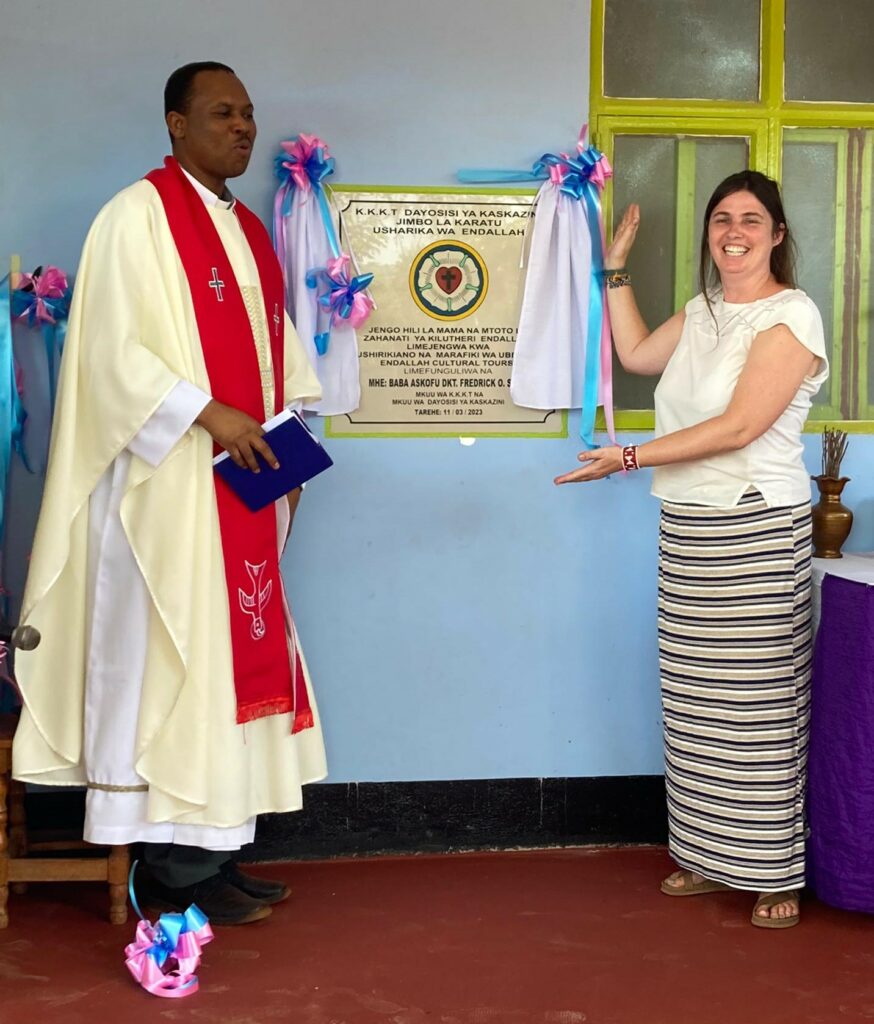

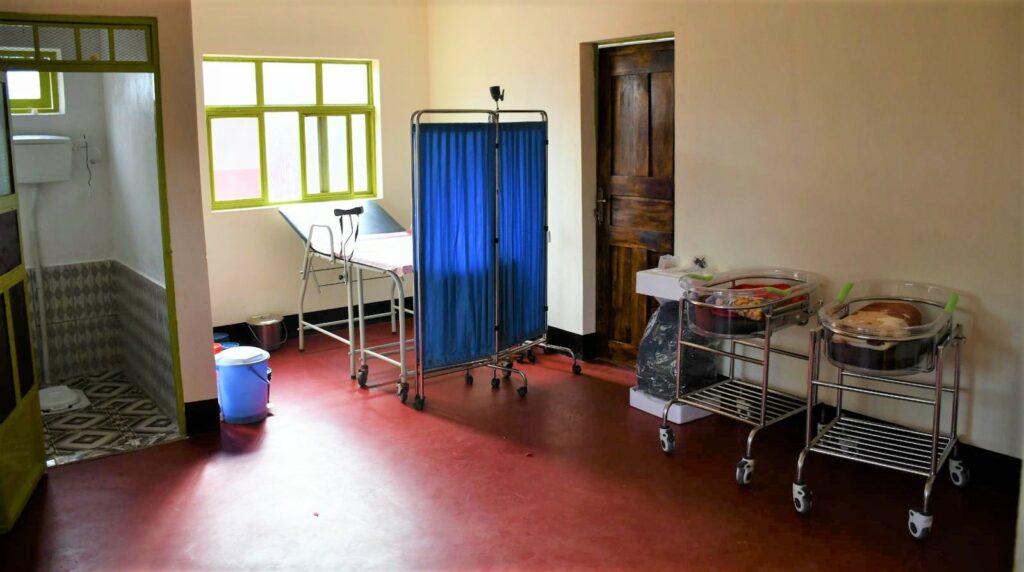
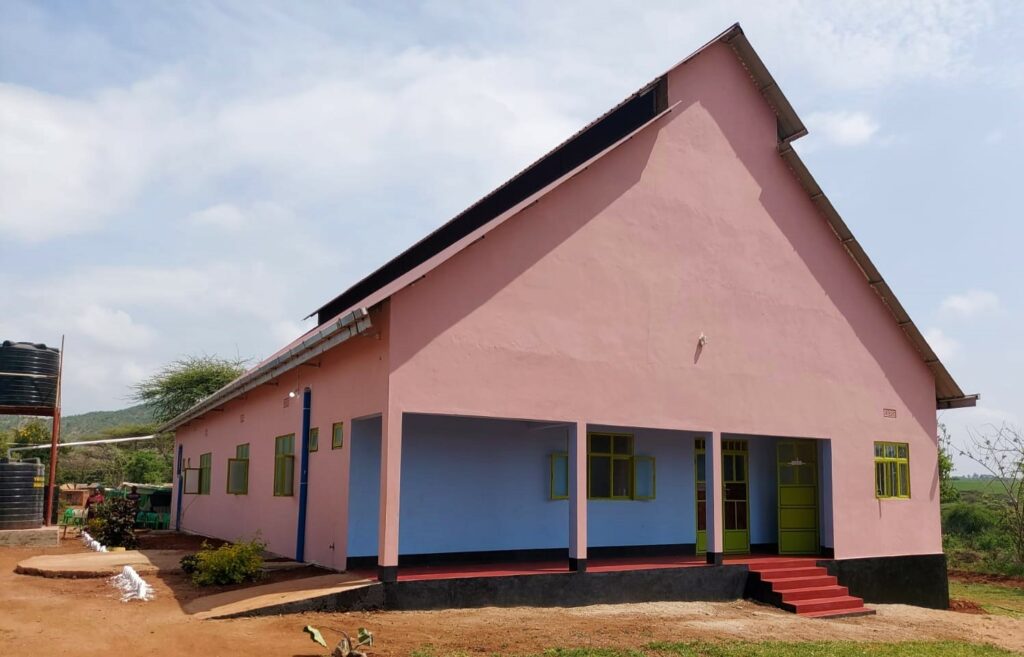
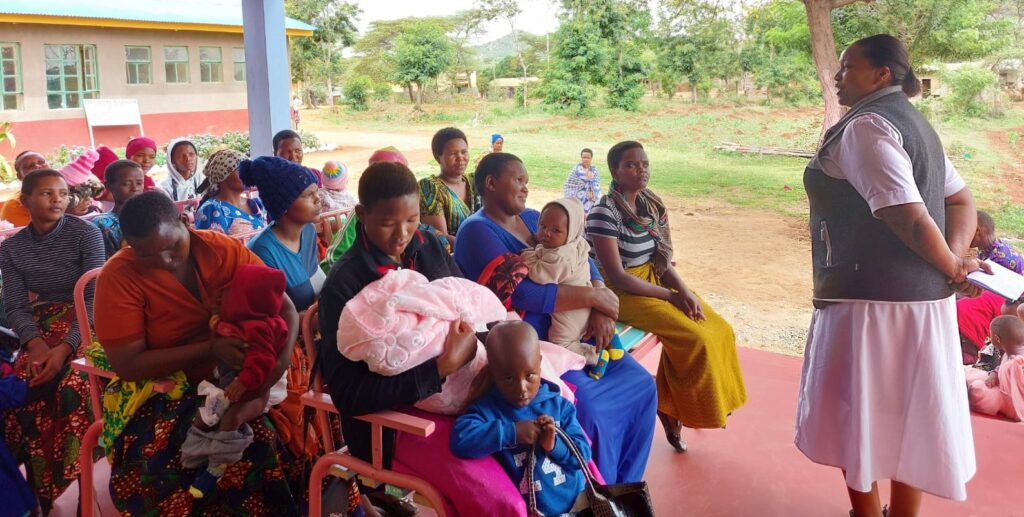
Total cost: 5.596,32 EUR
Schedule: Completed (April 2023)
This phase will be fully financed by Afas Foundation.

We are regularly asked whether it is possible to donate medication and medical equipment. You can really help by giving wound disinfection products, isobetadine ointment, physiological water, (sterile) compresses, bandages, plasters, paracetamol, cetirizine, ibuprofen, omeprazole, piroxicam, loperamide, AA & AAA batteries, baby clothes, blankets for newborns and clothing for adults. All this must not be expired, damaged or dirty. We promise that everything will reach the site quickly. Especially Loperamide & isobetadine ointment are more than welcome. These are very difficult to obtain in Tanzania.Thanks in advance.
